Rechercher dans ce blog
Tuesday, April 30, 2019
Lebanese Cabinet Begins Discussing Austerity Budget
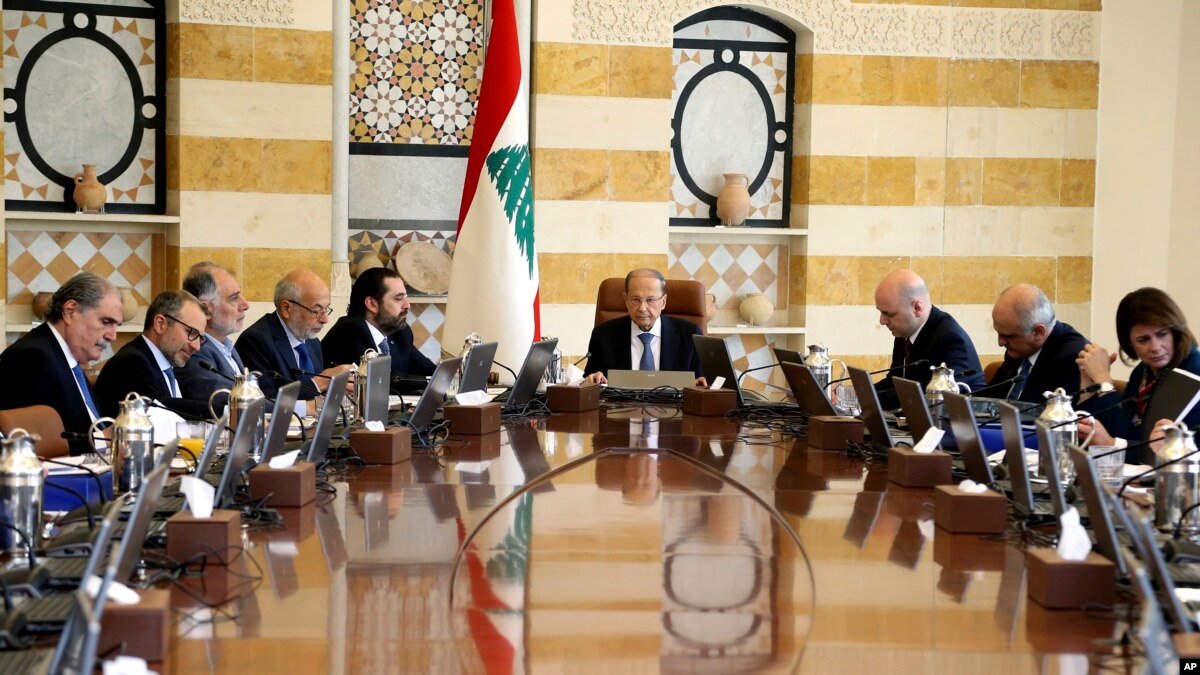
Lebanon's finance minister says the government has started open-ended discussions to quickly approve the country's draft austerity budget.
Lebanon's economy is suffering from slow growth, a high budget deficit and massive debt.
Ali Hassan Khalil told reporters after a Cabinet meeting Tuesday that the government aims to reduce the percentage of the budget deficit compared with the gross domestic product.
Leaks through the media about steps that could include cutting end of service and social benefits of civil servants have led to protests around Lebanon by retired military personnel and others.
The Labor Union called for a three-day strike starting Thursday if workers' demands are not met.
Khalil said he does not know the reason behind the call for the strike adding that the budget has not been approved yet.
Netflix Announces Deal for Film About Thailand's Cave Boys
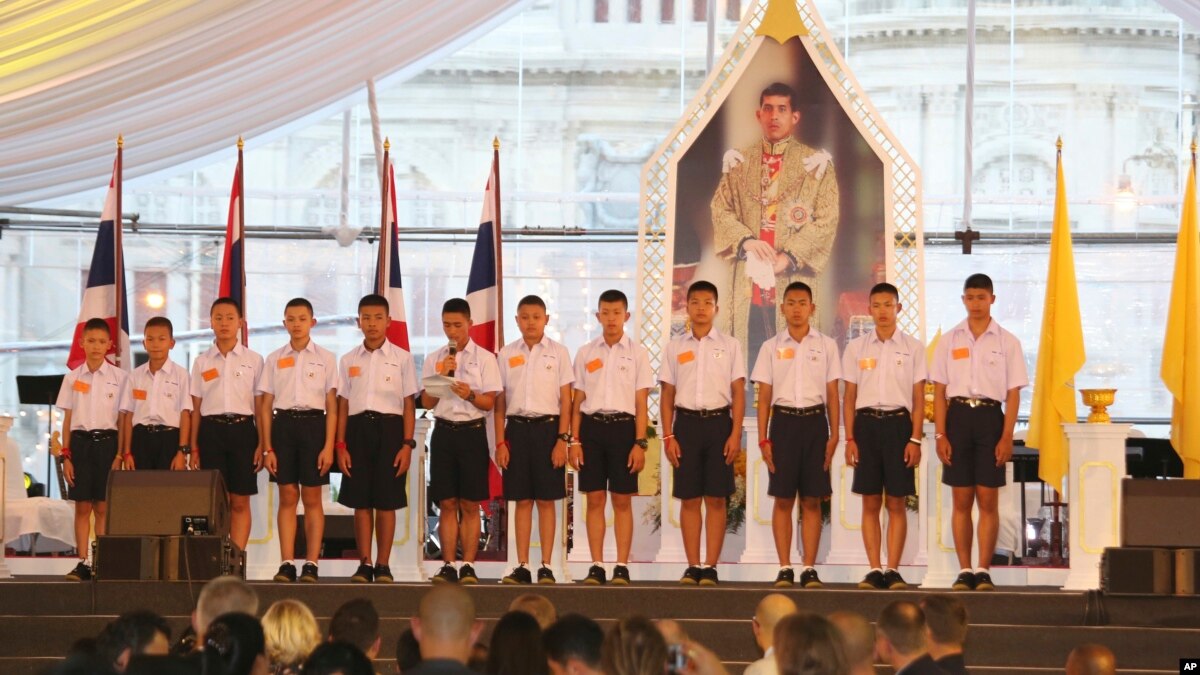
Netflix announced Tuesday it is joining with the production company for the movie “Crazy Rich Asians” to make a film about last July’s dramatic rescue of 12 village boys in northern Thailand who were trapped with their soccer coach in a flooded cave for more than two weeks.
Netflix and SK Global Entertainment said in Bangkok they have acquired the rights to the story from 13 Thumluang Co. Ltd,, a company that Thailand’s government helped establish to represent the interests of the boys and their coach, who attended the news conference for the announcement.
Thailand’s Culture Ministry in March first unveiled the deal, announced as a miniseries. Deputy government spokesman Weerachon Sukoondhapatipakat was quoted then as saying that the families of the cave survivors would each be paid 3 million baht ($94,000).
The boys of the Wild Boars soccer team and their coach became a center of world attention after they became trapped in the cave on June 23 last year, with doubts they were able to find shelter from rising flood waters that poured in after unexpected rain. They were found by two British divers and brought out by an international crew of experienced cave divers who teamed up with Thai navy SEALs in a dangerously complicated mission that was successfully concluded on July 10.
“We are grateful for the opportunity to thank the people and organizations from Thailand and around the world who came together to perform a true miracle, by retelling our story,” said Ekapol “Ake” Chanthawong, the boy’s assistant coach who shared the ordeal with them. “We look forward to working with all involved parties to ensure our story is told accurately, so that the world can recognize, once again, the heroes that made the rescue operation a success.”
Tuesday’s announcement said 13 Thumluang “has committed to donating 15% of the revenues derived from bringing this story to global audiences to charity organizations that focus on disaster relief.”
Jon M. Chu, who helmed “Crazy Rich Asians,” and Nattawut “Baz” Poonpiriya, a Thai filmmaker, will be directors on the cave project.
“We are immensely proud to be able to support the retelling of the incredible story of the Tham Luang cave rescue,” Erika North, director of International Originals at Netflix, said in a statement. “The story combines so many unique local and universal themes which connected people from all walks of life, from all around the world. Thailand is a very important country for Netflix and we are looking forward to bringing this inspiring local but globally resonant story of overcoming seemingly insurmountable odds to life, once again, for global audiences.”
The rescue was a rare bit of feel-good news from Thailand, which has been mired in political conflict and heavy-handed military rule for more than a decade. The cave rescue also allowed the government of Prime Minister Prayuth Chan-ocha, who had seized power in a 2014 military coup, to share in some glory.
An independent film about the adventure, “The Cave,” was shot soon after the rescue and is supposed to be released later this year.
China Sentences 6 Foreigners for Drugs; Canadian Gets Death
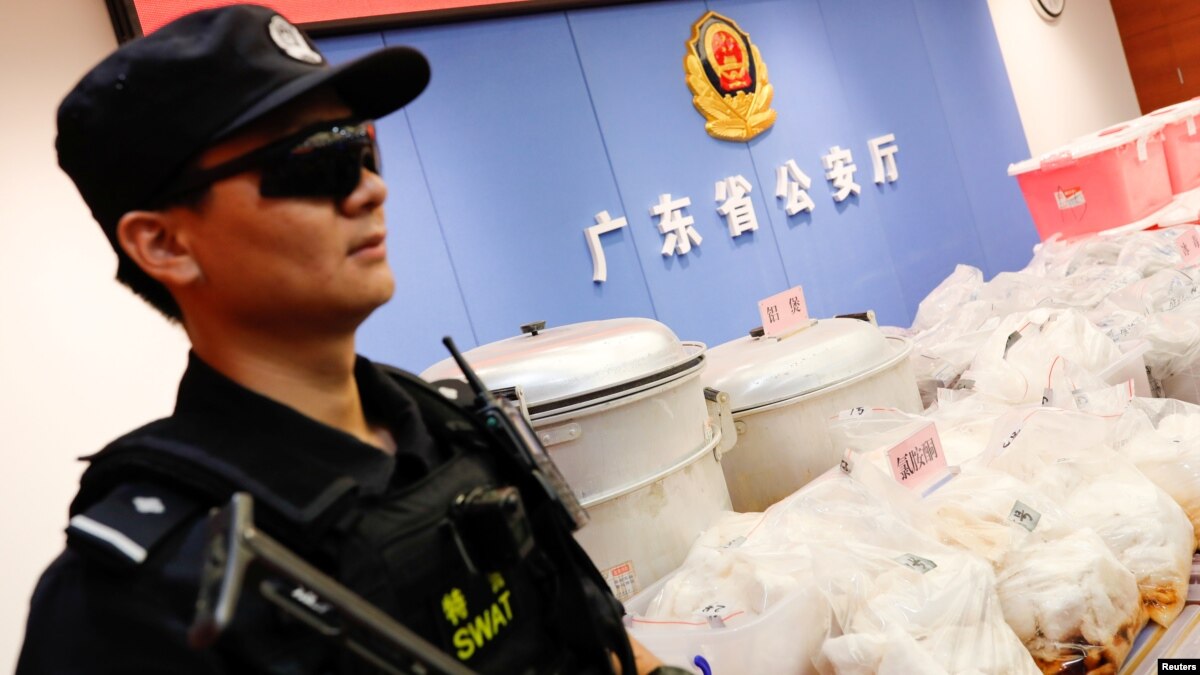
A court in southern China handed down sentences Tuesday to at least six foreigners involved in an international methamphetamine operation, including a Canadian given the death penalty.
The Jiangmen Intermediate People's Court in southern Guangdong province sentenced 11 people who produced more than 63 kilograms (139 pounds) of methamphetamine, an illegal drug.
Among them were one American and four Mexicans, who were all given life sentences or death sentences suspended by a period of two years. The court statement did not make clear which individual received what sentence, nor did it give their full names,
The Canadian sentenced to death was identified as “Fan Wei,” but it was unclear whether that's the person's legal name. A person identified as Wu Ziping, whose nationality was not specified, was also handed the death sentence.
The sentence is likely to further strain Sino-Canadian relations, which have frayed since Canada arrested a Chinese tech executive last December at the request of the U.S. Since then, China has detained two Canadians and delayed some Canadian exports in apparent retaliation.
According to the court, Fan Wei and Wu conspired to manufacture and sell the drugs in 2012, and brought the others - described as “drug-making technicians” - on board. Between July and November of that year, the court says, the group set up a “den” in Guangdong's Taishan city, where they produced and sold more than 63 kilograms of methamphetamine and 365.9 grams of dimethyl amphetamine.
A court employee reached by phone declined to give further details on the case.
In a separate drug smuggling case, China sentenced Canadian Robert Lloyd Schellenberg to death in a sudden retrial January - one month after Canadians Michael Kovrig and Michael Spavor were detained on vague national security allegations. The moves were widely seen as punishment for Canada's arrest of Meng Wanzhou, chief financial officer of the Chinese telecom company Huawei.
China has also suspended the license of two major Canadian canola exporters, alleging that officials discovered hazardous organisms in canola seed shipments.
US Treasury Secretary Hopes for 'Substantial Progress' in China Talks
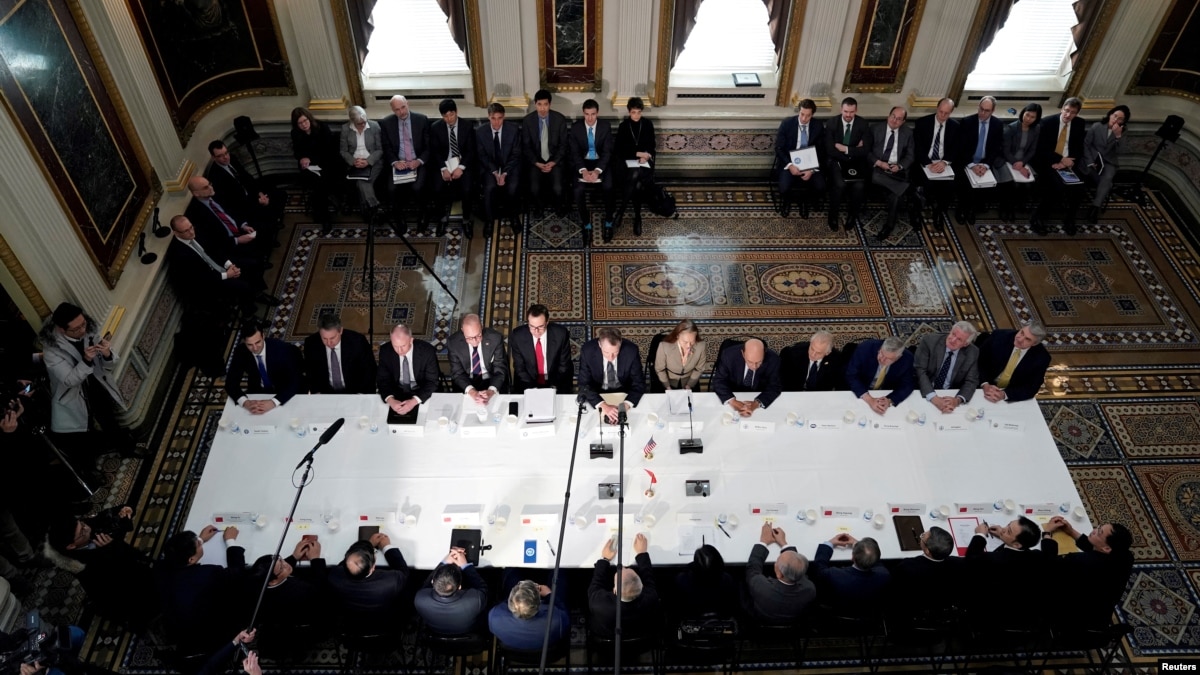
U.S. Treasury Secretary Steven Mnuchin says he hopes to makes "substantial progress" in trade talks with China, as the world's two largest economies try to reach a resolution to their trade war.
Mnuchin and Trade Representative Robert Lighthizer are leading a U.S. delegation meeting with Chinese officials this week in Beijing.
Next week, Chinese officials will travel to Washington for another round of talks.
Washington and Beijing have held several rounds of talks this year to resolve a trade war that began in 2018 when President Donald Trump imposed punitive tariffs on $250 billion worth of Chinese imports. He has been trying to compel Beijing to change its trade practices. China retaliated with tariff increases on $110 billion of U.S. exports.
Thailand Prepares For First Coronation in Seven Decades
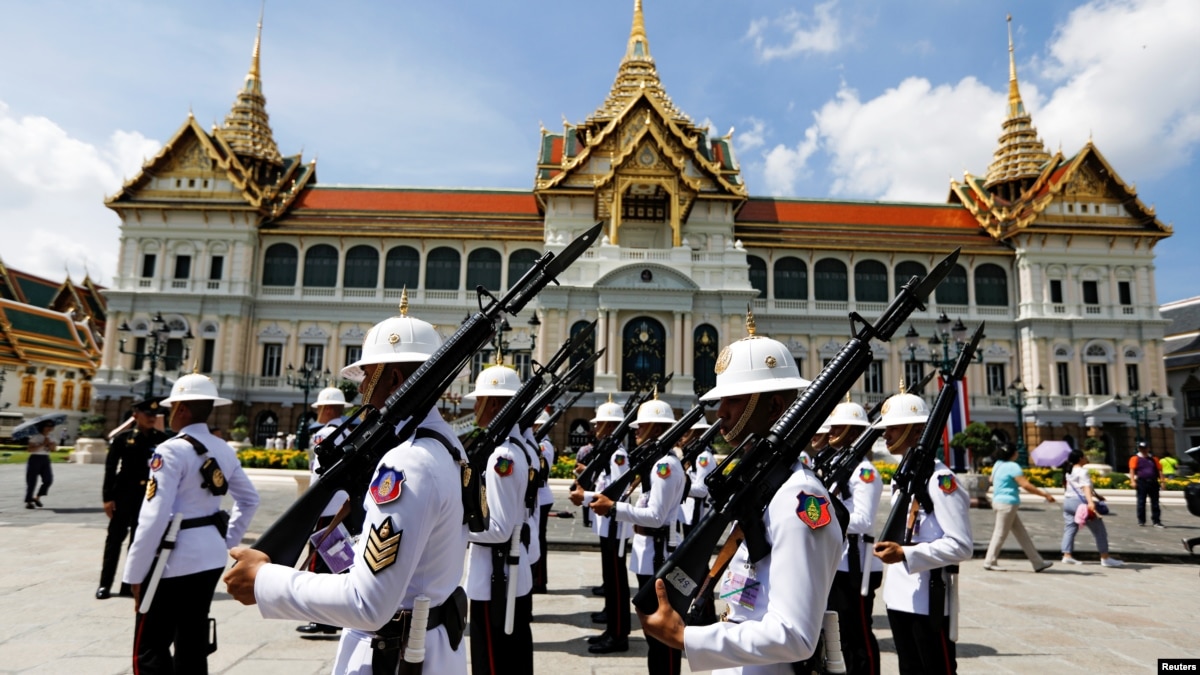
Thailand's teeming capital is gearing up for three days of elaborate ceremonies starting Saturday for the coronation of King Maha Vajiralongkorn, amid an ongoing tug-of-war among the country's entrenched political factions over the results of the country's first general election since a 2014 coup.
The coronation, estimated to cost upwards of $30 million, will be the first in the lifetime of most Thais. It follows the record-breaking reign of King Vajiralongkorn's father, King Bhumibol Adulyadej, who took the throne in 1946 and died in October 2016 at the age of 88.
While Thailand's constitutional monarchy wields limited political power, most Thais revere their royals as near-deities. Strict lèse-majesté laws also render the king virtually unassailable and have landed many in court or jail.
For the past few weeks, work crews have been sprucing up the routes around the Grand Palace, officials have been collecting and consolidating waters from across the country for the king's ablutions on Saturday — the day his is officially crowned — and major roads have been closed off for rehearsals for the main procession on Sunday. The king will meet the public and foreign dignitaries on Monday, which has been declared a public holiday.
The hundreds of thousands expected to turn out for the ceremonies have been invited to wear yellow, the king's color.
"It's highly important because it's the first coronation in 70 years, since the Second World War, so in this sense it's historic," said Prajak Kongkirati, a political science lecturer at Thammasat University in Bangkok.
"And also it represents [the] beginning of [a] new era, two new eras — not only the change of reign but also real change of new political order," he said.
While the king is meant to float above the country's contentious politics, the monarchy is rarely far from the fray.
The powerful military, which has been running Thailand since it toppled the elected government in 2014, sells itself as a bulwark against those — real or imagined — who would turn the country into a republic. And in the color-coded protests that have periodically rocked Bangkok over the past decade, the "red shirts" of the mostly rural, anti-military camp have faced off against the largely urban, pro-military "yellow shirts" draped deliberately in the royal hue.
King Vajiralongkorn also placed his stamp on the latest election after his elder sister made a surprise bid for prime minister with a party aligned with the anti-military camp.
Only hours after the princess announced her candidacy in February, the king issued a statement calling the move "highly inappropriate" and unconstitutional. The Election Commission soon disqualified her and a court dissolved the party that backed her run.
The commission is due to announce the full official results of the March 24 poll on May 9, three days after the coronation ceremonies conclude.
While the pro-military Palang Pracharat party won the popular vote, with prime minister and coup leader Prayuth Chan-ocha vying to hold on to his post on its ticket, control of the House of Representatives remains up for grabs.
Both Palang Pracharat and its main rival, Pheu Thai, which ran a close second, have already claimed the right to form the next government and are cobbling together coalitions hoping to secure enough legislative seats to do it.
Paul Chambers, a political analyst and lecturer at Thailand's Naresuan University, said the coming coronation has helped keep the contest from spilling into the streets as it has in years past, given the reverence most Thais have for the monarchy.
"The coronation is keeping the lid on... pent up frustrations," he said.
"The junta, and its aristocratic allies, realizes that people are not going to be happy with the [election] result that the military wants the outcome to be. But if in the period before the election outcome is announced, if during that period the coronation is going to happen, well, then Thai people are not supposed to create disorder and, you know, break the peace. So in a sense this really helps the military in that they can sort of compel Thai citizens to be peaceful," he added.
"On the other hand, the fact that the election is actually happening is really the result of the king wanting to have a democratic atmosphere prior to his coronation. So it is kind of an interesting confluence."
Though the junta has always promised to return Thailand to civilian control, it has postponed tentative election dates several times. And considering how divided the country remains, as the election proved, there was little pressure on the military to hold a vote any time soon, said Chambers — except from the royal palace.
Many expect Prayuth to secure enough combined votes in the House and the military-appointed Senate to hold on to the premiership. But if he does, he will be doing so after a tainted election and may have to manage with a minority coalition in the House.
"The importance of the coronation is that it forced the election to happen," said Chambers. "And then, after the coronation... and most likely Prayuth is the prime minister, people are not going to be happy, and it's going to create more problems for Prayuth."
Read More Thailand Prepares For First Coronation in Seven Decades : http://bit.ly/2GTbimsIndonesia Charts Two Soft Courses to Contain China
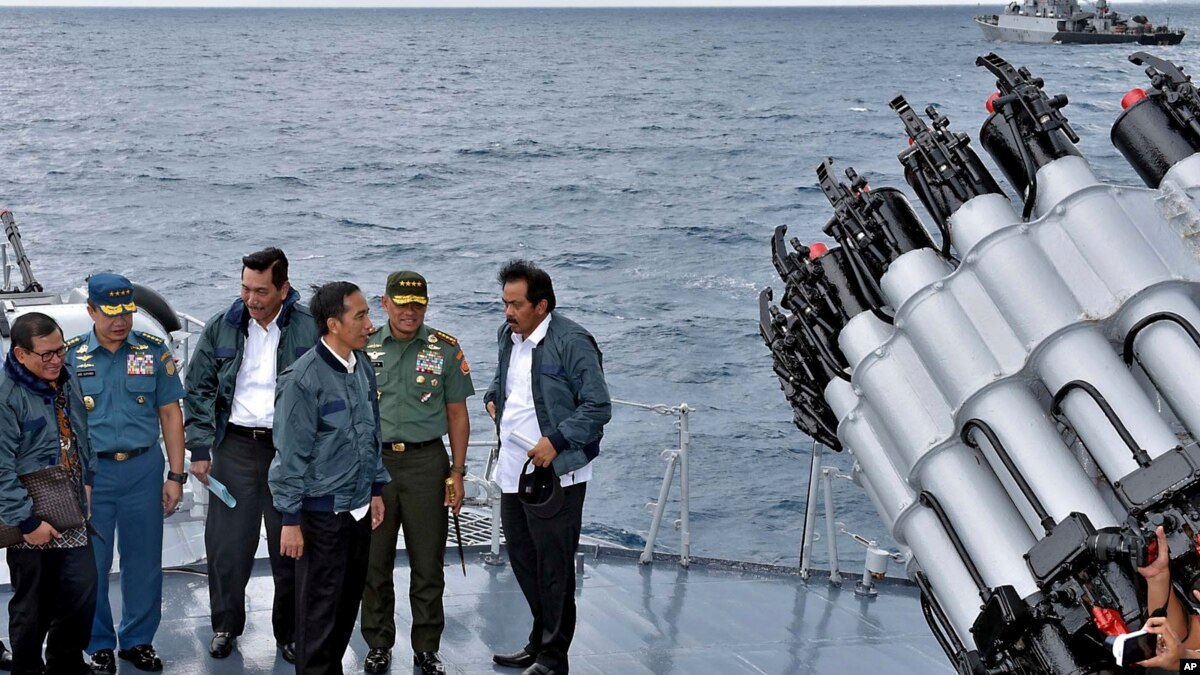
Expanding Chinese maritime interests in the Indian and Pacific oceans have emerged as a foreign policy priority across the region with Indonesia wanting and expected to play a key role as President Joko “Jokowi” Widodo settles in for his second term.
Two approaches are being pushed in diplomatic circles, but quietly, amid fears among smaller nations – like Cambodia, Laos, Brunei and even The Philippines – that opposing Beijing’s seaborne strategy would risk losing Chinese largesse and investment.
A trilateral relation between Indonesia, India and Australia is finding traction but is currently on ice with all three countries holding elections in the first half of this year. The second is the Indo-Pacific strategy, or Indo-Pac, an alliance between Indonesia,Australia, India, the US and Japan.
Kevin O’Rourke, an analyst with PT Reformasi Info Sastra, said the Indonesian economy remains Jokowi’s top priority and he is also reluctant to risk potential Chinese investment.
“However, he does seem to have a decent rapport with the current foreign minister Retno Marsudi, so she should continue, and she’s been a solid proponent of efforts to discuss the Indo-Pacific strategy, which has substantial support within elements of the foreign ministry,”he said.
“So I think that inclination for an Indo-Pacific strategy is going to continue in a second Widodo term.”
Chinese Expansion
China launched its “string of pearls” strategy— a forward line of ports and trade routes – at the turn of the century, crossing international sea lanes in the South China Sea and claiming disputed islands and reefs. Some within the Exclusive Economic Zone of its neighbors.
It has ignored its own signature to the United Nations Convention for the Law of the Sea and lost its claims to islands held by The Philippines at an international tribunal in The Hague.
Despite objections it pressed on.
On land, expansion was recast into China’s Belt and Road Initiative (BRI), described by the US as a“vanity project”,investing and lending heavily, then seizing assets when countries cannot afford to repay, known as debt traps.
Sri Lanka in the Indian Ocean was forced to handover Hambantota Port. In the Pacific, Australia was forced to outbidChina for control of a debt-ladened port in Fiji, a traditional base in its US-Pacific alliance.
Mohan Malik, of the Asia-Pacific Center for Security Studies, said Australia and Indonesia were the “quintessential Indian-Pacific” nations,“… in the sense that both these countries are Pacific powers as much as they are Indian ocean powers.”
Beijing also fell foul of Jakarta when it claimed Natuna Island – long recognized as Indonesian sovereign territory – as part of its nine dash line delineating its claims in the South China Sea. In a bid to reassert its sovereignty Jakarta renamed that maritime zone the North Natuna Sea.
“Indonesia wants to be a global maritime fulcrum, how it can play that role is open to question, it’s a lofty concept, it’s identical to the Indo-Pacific construct,” Malik said.
Twin strategies
Don Greenlees, a senior fellow with Australian National University, said Indonesia’s China policy remained “a work in progress” as it was difficult to predict what China would do next.
“They do see the South China Sea as potentially quite a dangerous flashpoint. They’ve got their territorial problems there with China, north of Natuna, and so it’s a bit of a balancing act and I think it’s the same balancing act, frankly, that everybody’s trying to grapple with,” he said.
Indian elections will not be completed until May 19,Australians go to the polls on May 18 while the next Indonesian government will not be sworn in until October 1.
Any further movement on building a trilateral relation between the three or formalizing and expanding the Indo-Pac strategy to include other countries is unlikely until later this year.
Both would mean increased military exercises, joint-policing and naval bases to counter Chinese influence from spreading southeast and southwest. Last year Indonesia signed a Comprehensive Strategic Partnership with Australia and is expected to sign a similar pact with India soon.
Analysts said the trilateral relationship was the easier option because it was underpinned by common diplomatic sense and three regional powers with common interests.
However, the Indo-Pac strategy and efforts to coax support from other countries had been tainted by a heavy US influence and its trade war with China, which Malik said had made Indonesia reluctant to offer its support publicly.
“What is very off is the security orientation or connotation that this concept has acquired under the US-Trump administration; free and open Indo-Pacific, which is seen as putting countries on notice in terms of choosing sides,” Malik said. “Other countries are torn between China and the U.S.”
Ties that bind
In the meantime, all three countries are pushing ahead with their own strategies.
Indonesia and India are developing a 40 meter deep port at Sabang on the northern tip of Sumatra. India’s navy is building military facilities at Port Blair, including new airstrips, and is expanding its its reach across the Andaman and Nicobar islands.
In March, Australia launched the Indo-Pacific Endevour 19, a naval deployment with India, Indonesia, Sri Lanka, Malaysia, Thailand, Vietnam and Singapore.
“That sends a very strong signal to China,” Malik said, adding that naval drills between Australia, India and Indonesia could become routine.“It would make sense for Indonesia to come out openly in favor of a Indo-Pacific concept.”
India has objected to BRI saying, in part, it violates its sovereignty because of developments built in Pakistan controlled areas that India regards as its own.
It was also a pointed no show at this weekend’s second BRI Forum in Beijing, which attracted delegates from 150 nations, including 36 leaders. Indonesia was the only country from Southeast Asia not to send its head of state while Australia mustered a mid-level delegation.
Read More Indonesia Charts Two Soft Courses to Contain China : http://bit.ly/2IP6D75US Watchdog Cites China As One of the Worst Violators of Religious Freedom
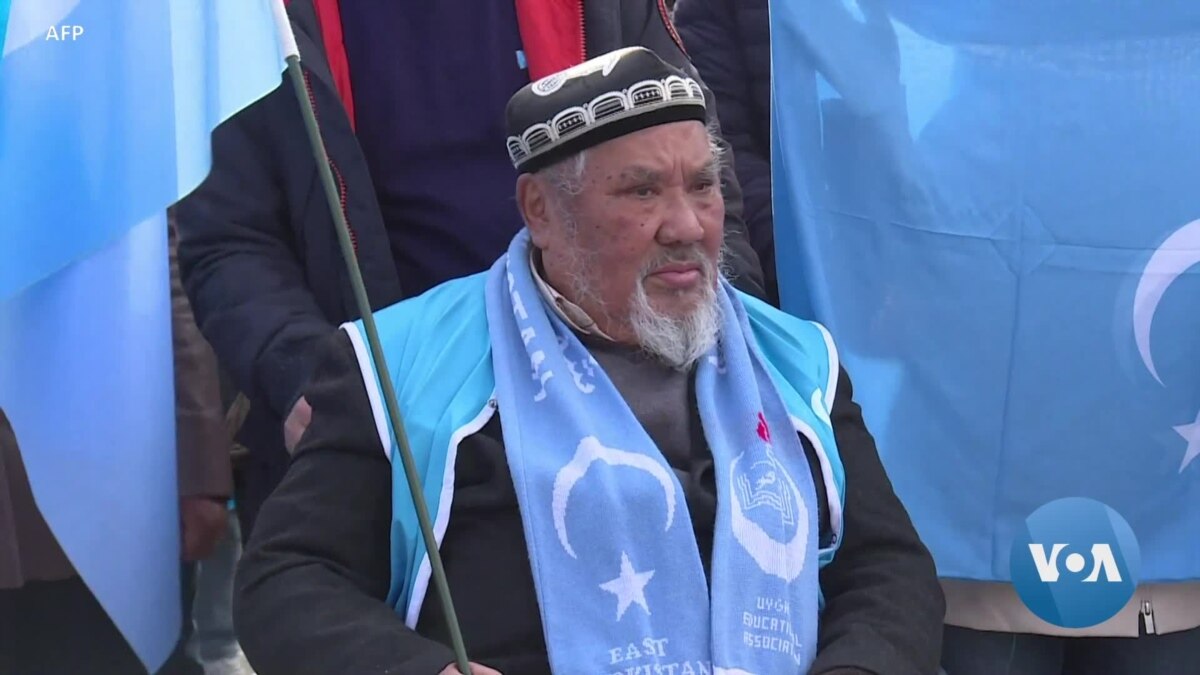
An independent U.S. watchdog group labeled sixteen nations Monday as "countries of particular concern" for engaging in "systematic, ongoing, egregious violations" of religious freedom. The U.S. Commission on International Religious Freedom cited China as one the worst violators, detaining between 800,000 and two million adult Uighur Muslims in concentration camps and relegating some of their children to orphanages. VOA’s Diplomatic Correspondent Cindy Saine reports.
Read More US Watchdog Cites China As One of the Worst Violators of Religious Freedom : http://bit.ly/2UPF5jsMonday, April 29, 2019
China's Xi Appeals to Youth Patriotism on Centenary of Student Protests
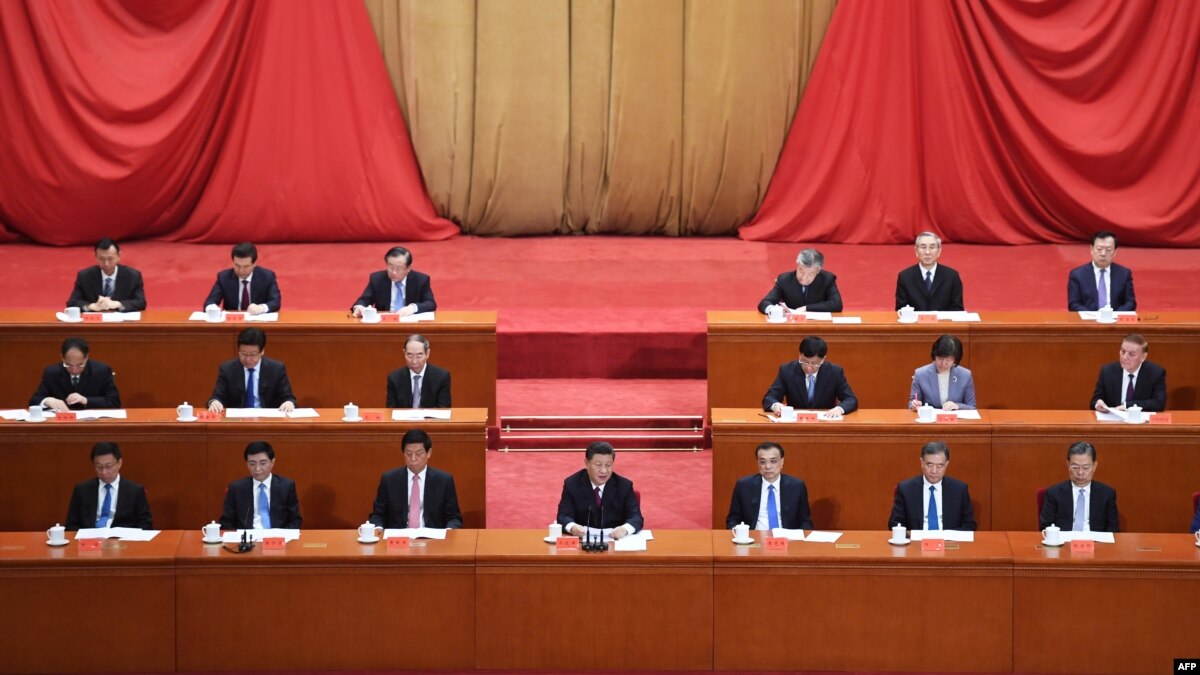
President Xi Jinping appealed to China's youth on Tuesday to love the country and dedicate themselves to the Communist Party, warning on the centenary of student-led protests there was no place for those who ignored the country's needs.
The May 4 Movement of 1919 started out as anti-imperialist student protests against a decision at the Paris Peace Conference, after World War I, to award Japan control of German concessions in China's Shandong province.
It soon encompassed a broader debate about how China should modernize, having only just overthrown the emperor and ushered in a republic in 1911.
The issue of student protests is especially sensitive in China this year, which also marks three decades since the bloody suppression of pro-democracy protests on and around Beijing's Tiananmen Square on June 4.
Speaking to officials and youth delegates at the Great Hall of the People, Xi said China's young should be grateful to the party, the country, the society and the people.
"Tell every Chinese person that patriotism is one's duty, is an obligation," Xi said, in comments carried live on state television.
"For Chinese youth of the new era, ardently loving the motherland is the foundation of building the body and of talent," he added.
Xi also warned about the need for young people to be morally upstanding and avoid what he termed "mistaken thoughts."
"In the new era, Chinese youth should consciously establish and practice the core values of socialism, and be good at drawing morality from the traditional virtues of the Chinese people," he said.
"Consciously resist mistaken thoughts such as the worship of money, hedonism, extreme individualism, and historical nihilism," Xi added, referring to attempts to reevaluate core events and personalities of the party's revolutionary past.
Despite the optimism the May 4 Movement brought at the time, the period following it was marked by turmoil and civil war in China, which eventually lead to the overthrow of the Republican government which fled to Taiwan after the Communist revolution in 1949.
Xi said that China had to make achievements on the back of its own work, and not rely on anyone else.
"A bright China is not a gift that can be given by anybody," he said.
While May 4 remains widely discussed in China, June 4 is taboo in China and it will not be marked by any officially approved events.
Xi is expected to be outside the country in early June this year, on a state visit to Russia and Central Asia.
UN Chief Warns of Rise in Religion-Based Violence
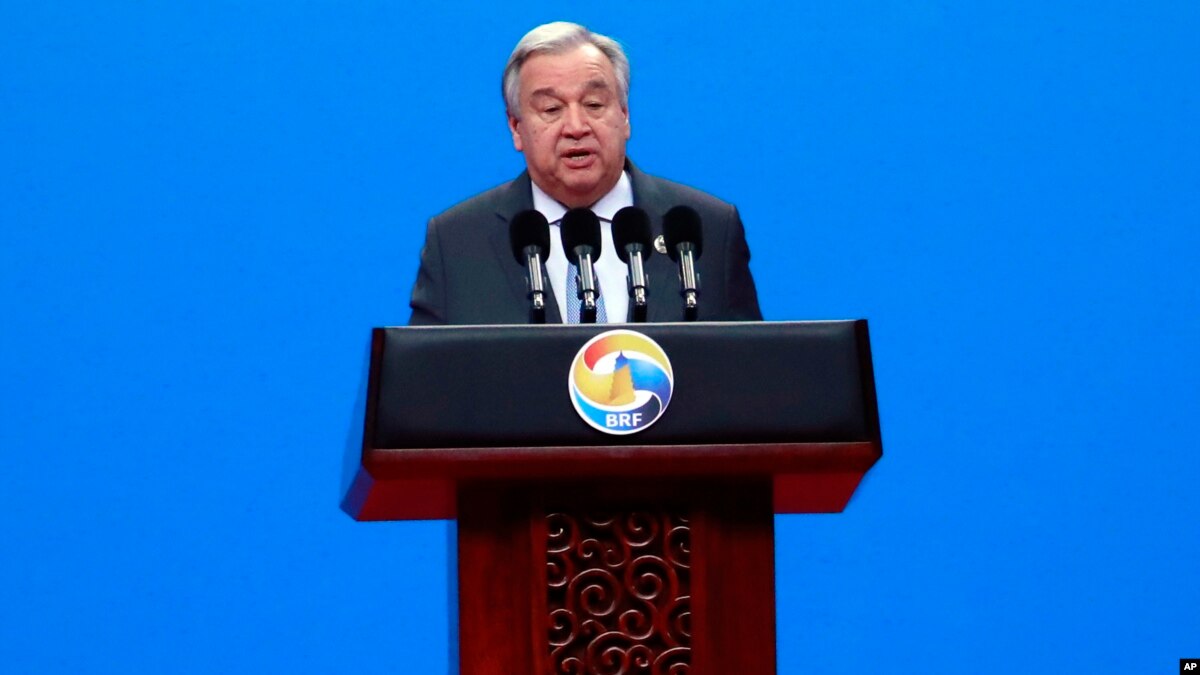
The U.N. secretary-general warned Monday of a "disturbing groundswell" of intolerance and hate-based violence aimed at followers of many faiths, and he called on world leaders to stop it.
"Houses of worship, instead of the safe havens they should be, have become targets," António Guterres said in a statement.
He pointed to the attack Saturday on a synagogue in California and on Sunday on a Protestant church in the African nation of Burkina Faso. Last month, 50 Muslim worshipers were killed by a lone gunman during two consecutive attacks on mosques in Christchurch, New Zealand.
"Such incidents have become all too familiar," he said. "Muslims gunned down in mosques, their religious sites vandalized; Jews murdered in synagogues, their gravestones defaced with swastikas; Christians killed at prayer, their churches often torched."
Guterres attributed the rise in such violent acts to inflammatory rhetoric; xenophobia especially targeting minorities, migrants and refugees; white supremacy and a resurgence of neo-Nazi ideology. He said there is, "venom directed at anyone considered the "other."
Guterres voiced concern that parts of the internet are becoming "hothouses of hate" where "like-minded bigots find each other." He noted that what were radical views of a few have now migrated into the mainstream.
"I am profoundly concerned that we are nearing a pivotal moment in battling hatred and extremism," the U.N. chief said. "The world must step up to stamp out anti-Semitism, anti-Muslim hatred, persecution of Christians and all other forms of racism, xenophobia, discrimination and incitement."
He said political and religious leaders have a special responsibility to promote peaceful co-existence.
For his part, Guterres said the world body is leading two initiatives. One will focus on tackling hate speech and will be led by his special representative on genocide prevention. The other will center on what role the United Nations can have in ensuring the safety of religious sanctuaries and will be directed by the high representative for the United Nations Alliance of Civilizations.
Myanmar's Suu Kyi in Cambodia to Strengthen Bilateral Ties
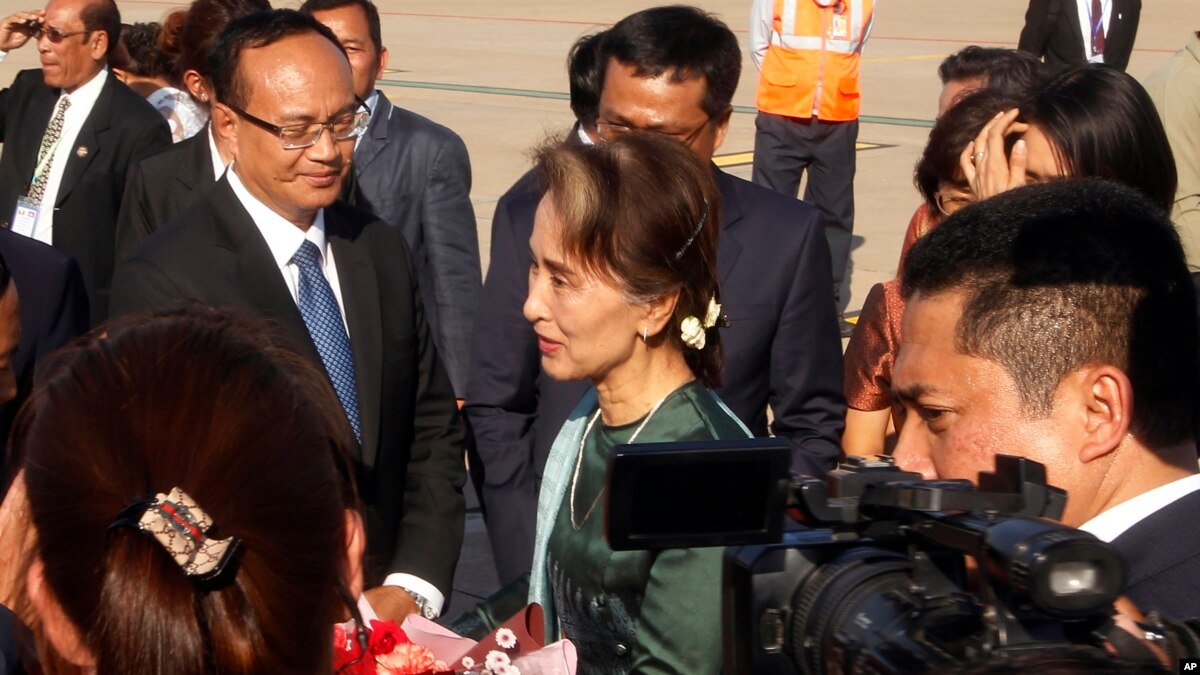
Myanmar State Counsellor Aung San Suu Kyi arrived in Cambodia on Monday for an official visit to strengthen ties between the countries.
The three-day visit is the first since Suu Kyi became her country's head of government in 2016. Cambodia's foreign ministry said she will meet with Prime Minister Hun Sen, King Norodom Sihamoni and other Cambodian officials before visiting the famous Angkor Wat archaeological complex.
Suu Kyi arrived from Beijing, where both she and Hun Sen attended a forum about China's multibillion-dollar Belt and Road Initiative. Representatives of 37 countries were at the meeting on the massive infrastructure-building plan.
Myanmar and Cambodia have both grown closer to China in reaction to pressure from Western nations over human rights issues. Concerns about Myanmar focused on the military's abuses of the Muslim Rohingya minority, which drove more than 700,000 across the border to Bangladesh, while Cambodia was criticized mainly for choking off political dissent, especially by having the only credible opposition party dissolved before last year's election.
Speaking last September at the regional World Economic Forum in Vietnam, Hun Sen strongly defended Myanmar against accusations that its security forces engaged in genocide against its Rohingya minority, and he hit back at criticism by outsiders of political issues in the Mekong region, saying that the countries should be allowed to solve their own problems.
Hun Sen said other countries do not understand the problems that Myanmar and its neighbors face.
“The situation in Myanmar is more serious because it has been accused of genocide, but do those who might accuse them know about Myanmar and do they know how to solve the situation up there?” he said, as he sat on the stage with Suu Kyi and the leaders of Vietnam, Laos and Thailand.
Myanmar and Cambodia both have a history of standing apart from the major powers, especially in the 1950s and 1960s. They established diplomatic relations in 1955, the same year both participated in the 29-nation Afro-Asian Conference, a forerunner of the Non-Aligned Movement.
China Showcases Ecological Achievements at 2019 Horticulture Expo
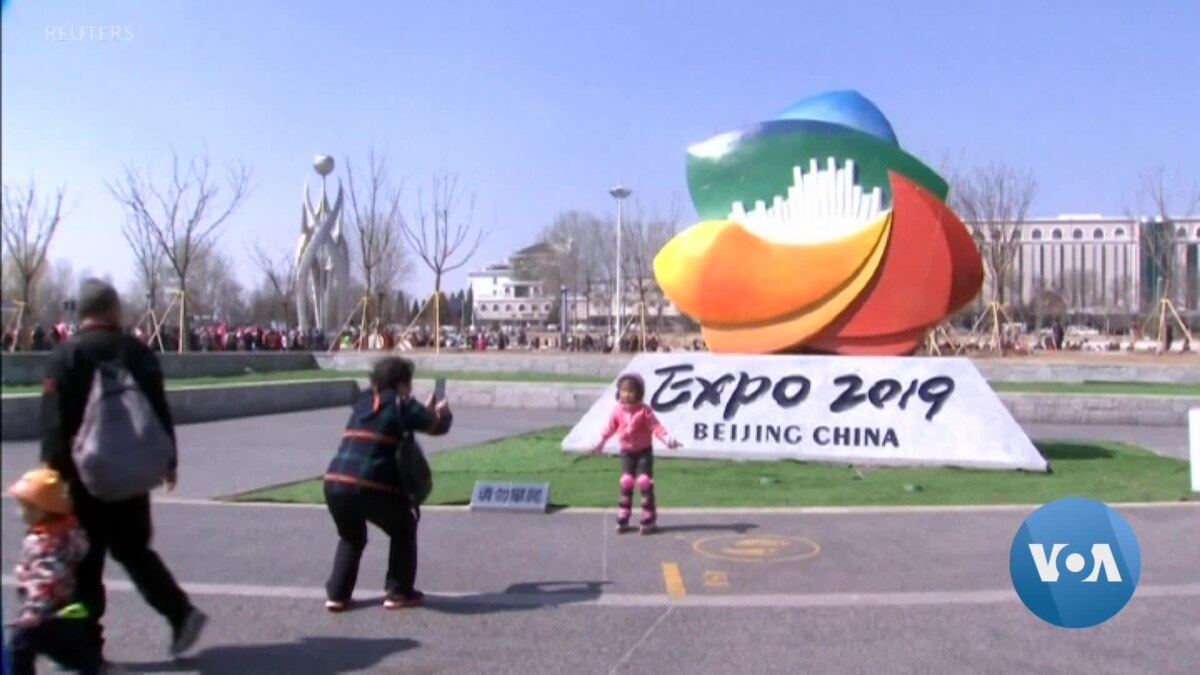
Chinese President Xi Jinping says people in China want bluer skies, greener mountains and clearer water. In his address Sunday at the opening ceremony for the 2019 Beijing International Horticultural Expo, Xi said the country has embarked on the construction of "ecological civilization." China is the world's worst polluter but has made efforts to cut down on carbon emissions in the past decade. VOA's Zlatica Hoke reports.
Read More China Showcases Ecological Achievements at 2019 Horticulture Expo : http://bit.ly/2Wj8SD3Sunday, April 28, 2019
Bolton: US Ignored $2 Million Bill from North Korea
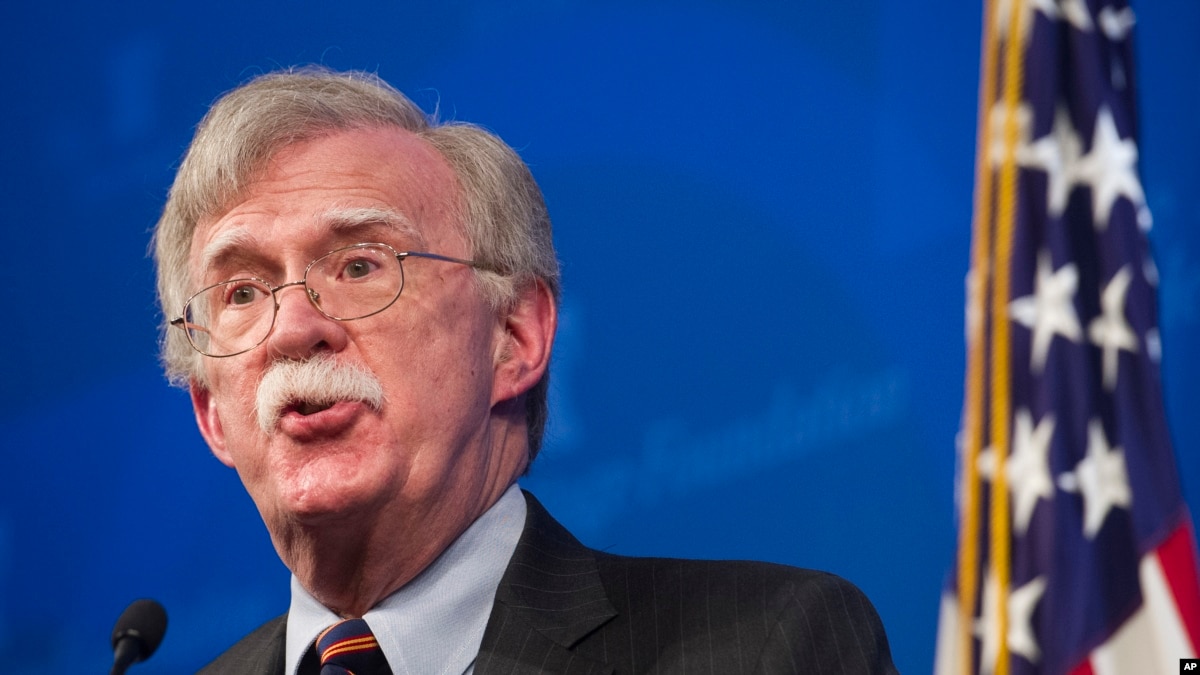
The U.S. signed a document agreeing to pay North Korea $2 million for the medical care of American Otto Warmbier who had been detained by Pyongyang, U.S. national security adviser John Bolton said Sunday, but then ignored the bill and never paid it.
"It is very clear to me from my looking into it in the past few days that nobody was paid," Bolton told Fox News Sunday. "That is clear."
Bolton was confirming news accounts in recent days that North Korea demanded the money when it released Warmbier, a comatose college student, to U.S. authorities nearly two years ago so he could be returned to the United States. He died days later.
Warmbier was a University of Virginia student visiting North Korea when he was jailed in January 2016, sentenced to 15 years for trying to steal a propaganda banner from his hotel.
The mainland China travel company that arranged Warmbier's trip, Young Pioneer Tours, specializes in “destinations your mother would rather you stay away from,” according to its website. It describes itself as “safe and fun.” Photos from the company’s website and Facebook page show selfies of happy, smiling, young Westerners in Pyongyang.
North Korean officials said Warmbier fell into a coma the night he was sentenced in March 2016, The Washington Post reported. Doctors have not identified the cause of his brain damage, and say they did not see evidence of him being beaten.
At their last meeting in Hanoi in February, President Donald Trump said he accepted North Korean leader Kim Jong Un's claim not to have known what had happened to Warmbier in prison, despite the case being extraordinarily sensitive.
"I will take him at his word," Trump said.
Following Warmbier's sentencing, the North Koreans did not tell U.S. officials until June 2017 that he had been unconscious for 15 months. The Washington Post said news of Warmbier's condition sparked a frantic effort to get him home. The effort was led by the State Department’s point man on North Korea at the time, Joseph Yun, who signed the agreement to pay the money.
Trump has sought to get Kim to agree to end North Korea's nuclear weapons development program, but talks between the two leaders collapsed in Hanoi after Kim agreed at a summit in Singapore a year ago to move toward denuclearization. Bolton said Trump is willing to meet a third time with Kim.
Thousands March in Hong Kong against Extradition Law
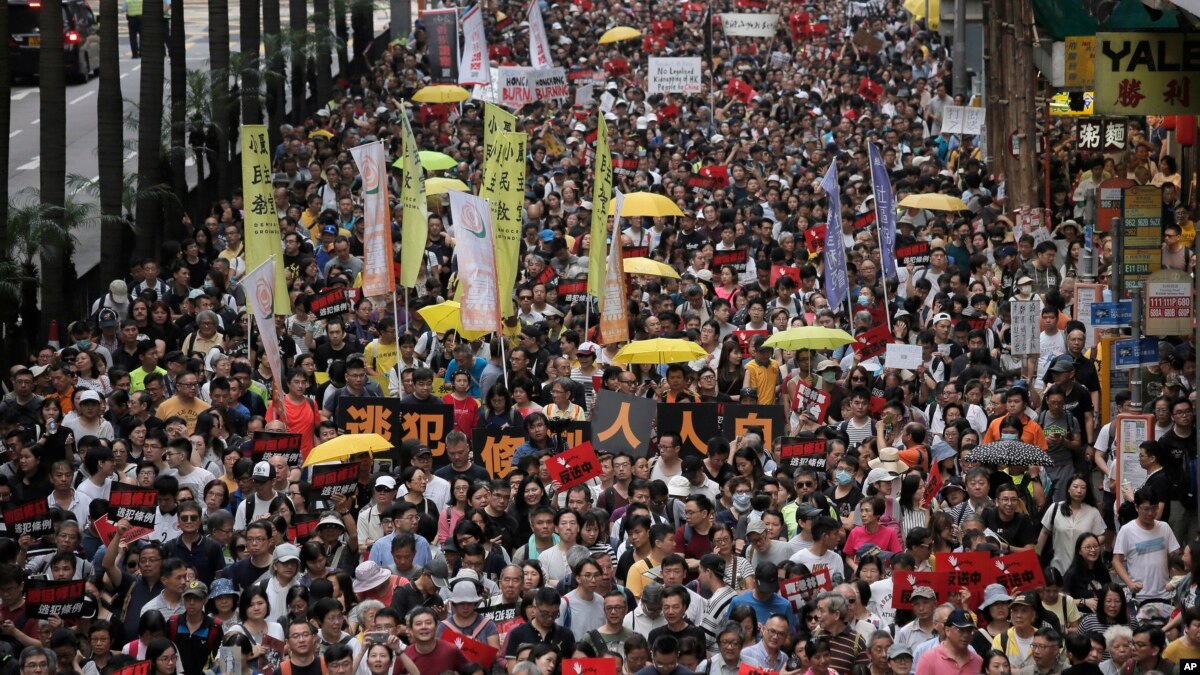
Thousands of protesters have marched through downtown Hong Kong in opposition to changes to an extradition law that many see as eroding the territory's independent legal system.
Many of those taking part Sunday carried yellow umbrellas, recalling Hong Kong's massive 2014 pro-democracy protests, the leaders of whom have been sentenced to up to 16 months in prison.
Hong Kong police said around 22,800 people took part in the protest at its peak period.
Participants carried placards accusing Hong Kong leader Carrie Lam of “selling out” Hong Kong, and called on her to resign.
Revisions to the law would make it easier to send criminal suspects to mainland China, where they could face vague national security charges and unfair trials.
Hong Kong's legal system offers greater protections than in mainland China.
Saturday, April 27, 2019
Trump Presses Japan's Abe to Build More Vehicles in US
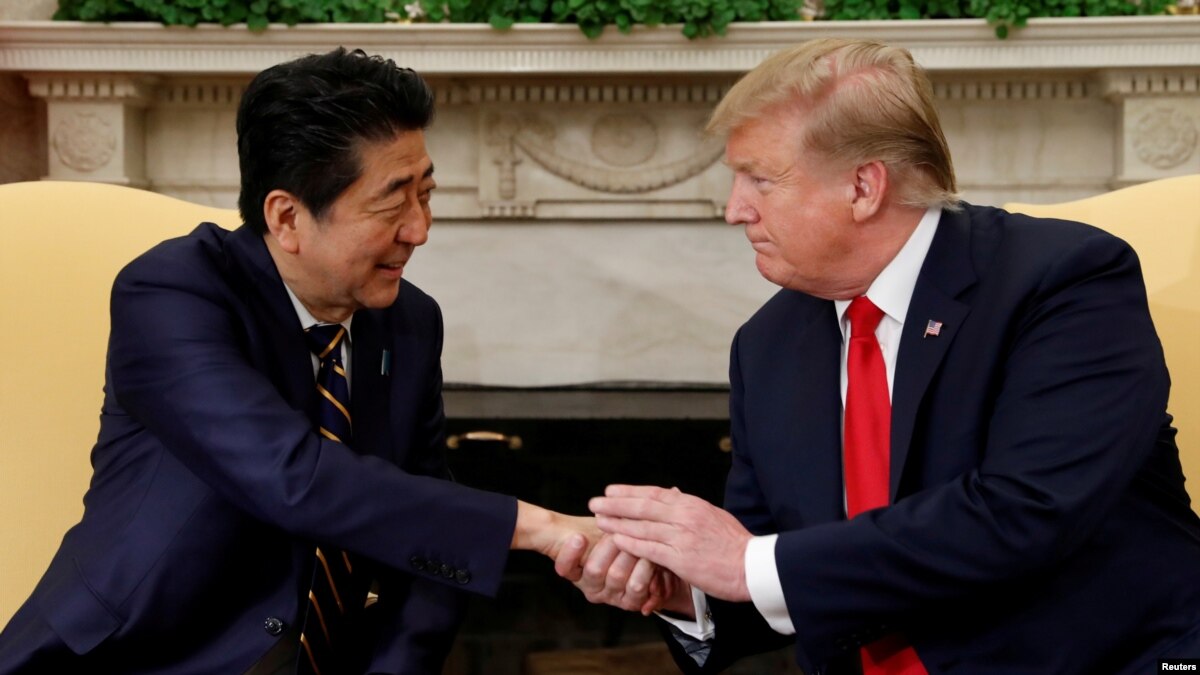
U.S. President Donald Trump urged Japanese Prime Minister Shinzo Abe to have Japanese automakers produce more vehicles in the United States, according to a readout of their recent meeting provided Saturday by the U.S.
ambassador to Japan.
The two discussed recent public announcements by Japanese automakers, including Toyota Motor Corp.'s decision to invest more in U.S. plants.
"We talked about the need to see more movement in that direction, but I think the president feels very positive that we will see such movement because all the economics support that," said Ambassador William Hagerty.
Trump has prodded Japanese automakers to add more jobs in the United States as the White House threatens to impose tariffs of up to 25 percent on imported vehicles, on the ground of national security.
Trump said Friday that it was possible that the United States and Japan could reach a new bilateral trade deal by the time he visits Tokyo in May, but he and Abe cited areas where they differ on trade.
"We want to ensure that the U.S. has trading terms with Japan that are no less favorable than any other nation," Hagerty said in a phone call with reporters.
He added that Trump is planning to attend the summit of the Group of 20 industrialized nations set to take place in Osaka, Japan, in June.
Separately, Trump was optimistic trade talks with China would be successful, the ambassador said.
Trump, Abe Cap Visit With Golf Outing
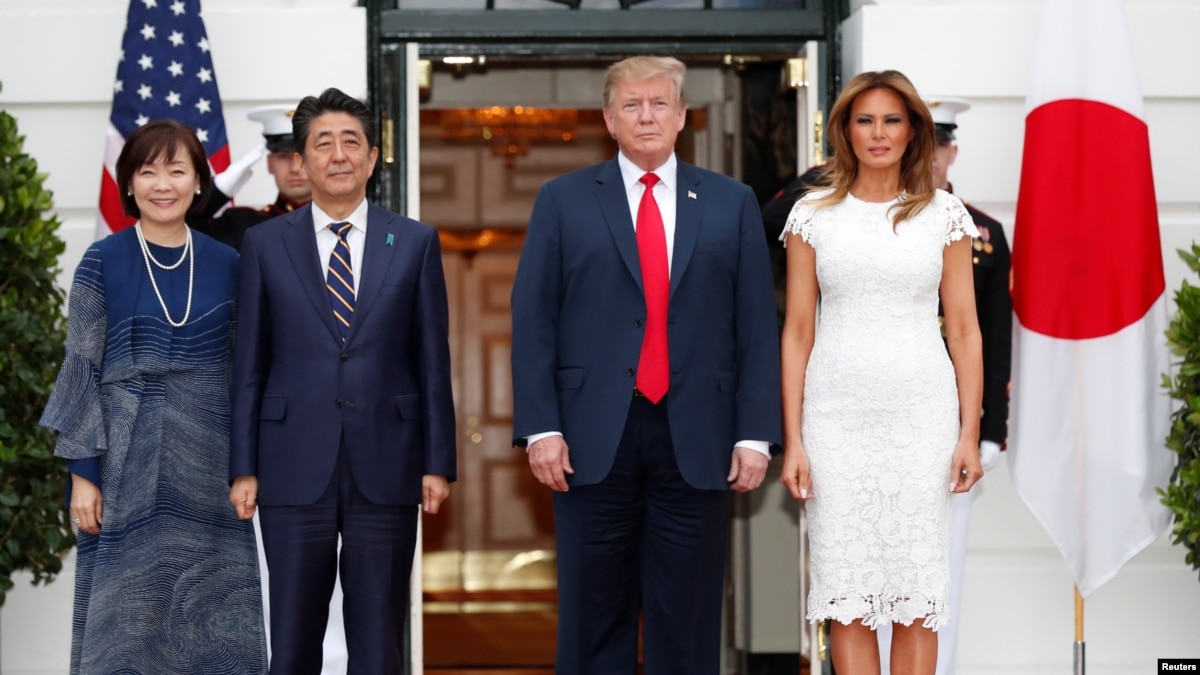
President Donald Trump and Japanese Prime Minister Shinzo Abe shared their love of golf on a sunny, windy Saturday at the president's northern Virginia course.
Trump said on the eve of their outing they'd play a quick round at a “beautiful” place before he goes to Wisconsin for a rally.
Meantime, Melania Trump and Akie Abe visited the Washington Monument after the two couples celebrated the U.S. first lady's 49th birthday over dinner the previous evening.
Abe has stressed the two men's shared interest in golf as he's become one of the few global leaders to build a personal relationship with Trump. They've played rounds together in both countries.
For all the camaraderie, Abe's visit also has been an occasion for each leader to express frustration about the other's tariffs.
Police Break up $1 Billion Vietnam Gambling Ring
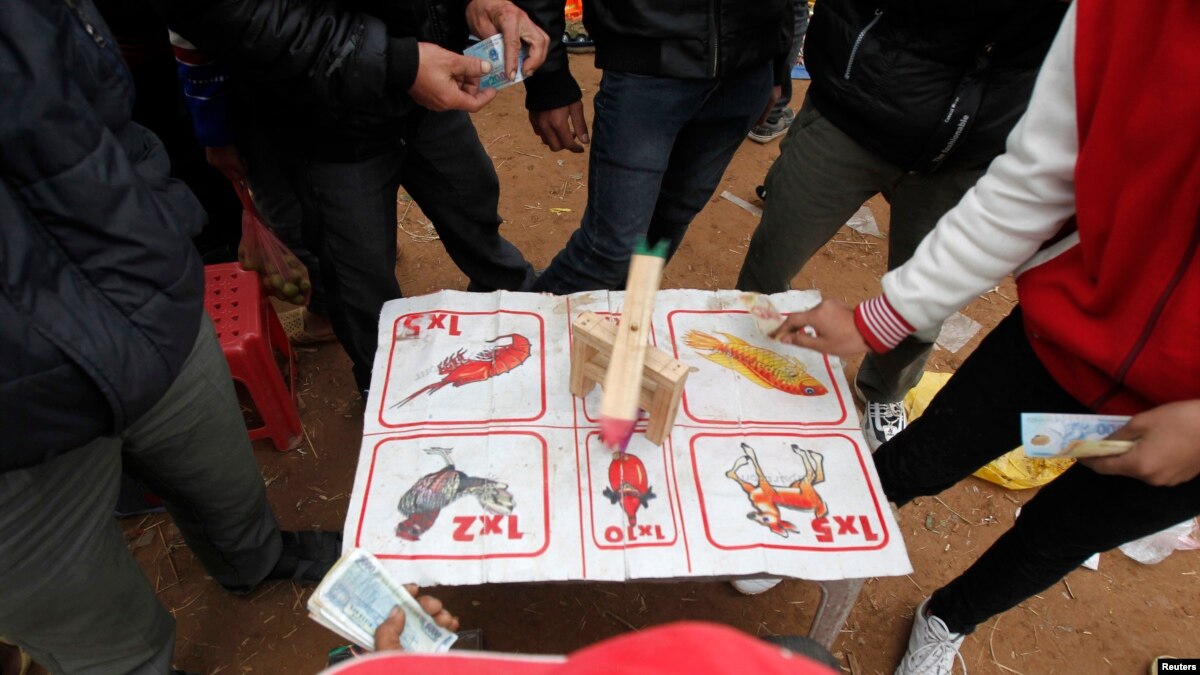
Police in Vietnam broke up an online gambling ring that had handled more than $1 billion in bets and arrested 22 people, reports said Saturday, in what is believed to be the largest-ever internet betting operation in the communist country.
Most forms of gambling are illegal for locals in Vietnam, but black market betting flourishes, especially on sports.
Massive raids in cities and provinces across the country this week came after the discovery of hundreds of thousands of accounts tied to a ring processing an estimated $1.28 billion in funds, state-run Thanh Nien newspaper said.
Sophisticated operation
The gambling ring was operating in a “sophisticated manner that had been so difficult to detect,” the report said, citing police sources.
It explained that gamblers who visited the website Fxx88.com were asked to deposit cash into banks in exchange for virtual money in coded accounts, mostly for football betting.
The accused hid the scope of the funds by using bank accounts with small amounts of money to conduct transactions.
So far a total of 22 people have been arrested including 12 organizers, police said.
Authorities declined to comment when asked for additional details.
Loosening rules
The one-party state has started loosening its rules on domestic gambling, allowing Vietnamese to bet in casinos on a trial basis and opening up some sports betting.
But lucrative illegal operations have mushroomed, prompting a crackdown.
Last year, 91 people — several of them high-ranking police officials — were either jailed or ordered to pay fines for their links with a gambling ring that handled $420 million in wagers.
Among those imprisoned was a former head of the “high-technology department” in charge of policing online gambling at the powerful Ministry of Public Security.
Investigations from that case are ongoing.
A former chief inspector at the Ministry of Information and Communication was arrested in Hanoi on Thursday for failing to spot illicit activity in the $420 million ring.
The communist party headed by conservative leader Nguyen Phu Trong has carried out an unprecedented anti-graft campaign nationwide.
Dozens of executives alongside former and current officials have been jailed while harassment of activists has mounted.
Friday, April 26, 2019
Chinese Investment in Myanmar's Rakhine State Questioned
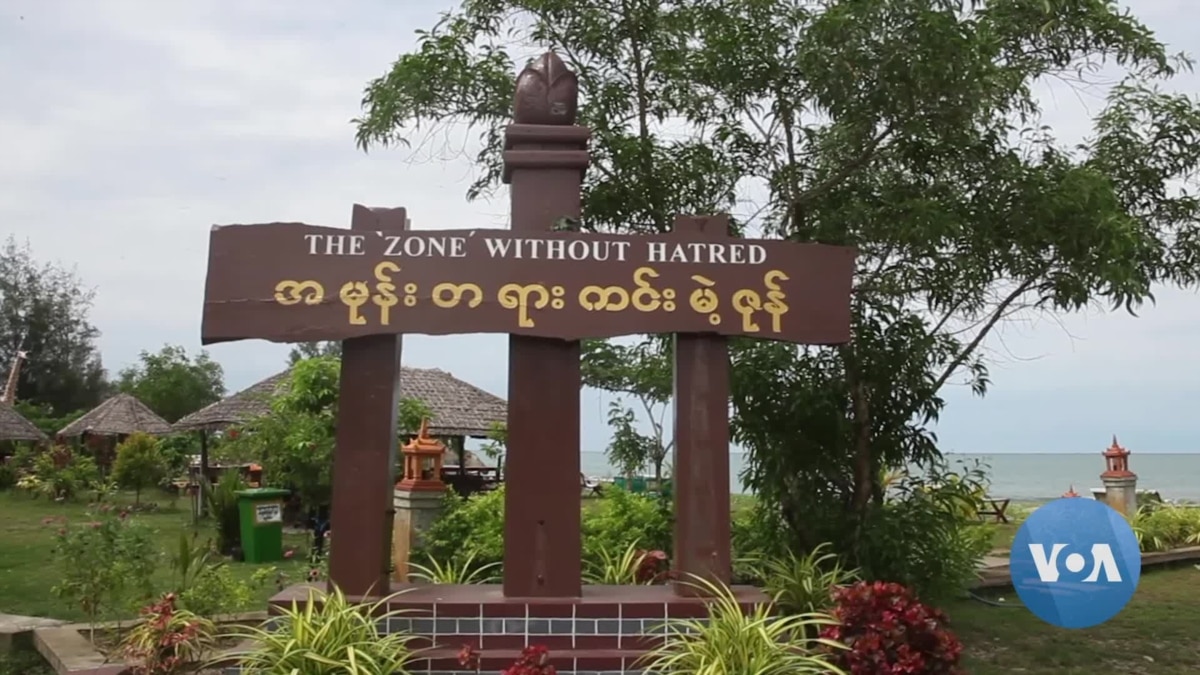
Myanmar's defacto leader and Nobel Peace Prize Laureate Aung San Suu Kyi is welcoming businesses to invest in Rakhine State, more than a year and a half since a brutal military crackdown forced hundreds of thousands of minority Rohingya Muslims to flee into neighboring Bangladesh. Despite the push for investment, many residents in Rakhine State worry they will not see any of the benefits. Libby Hogan has this report from Kyaukpyu Beach in Rakhine State.
Read More Chinese Investment in Myanmar's Rakhine State Questioned : http://bit.ly/2XMKgCTTrump Welcomes Russia and China's Help With North Korea
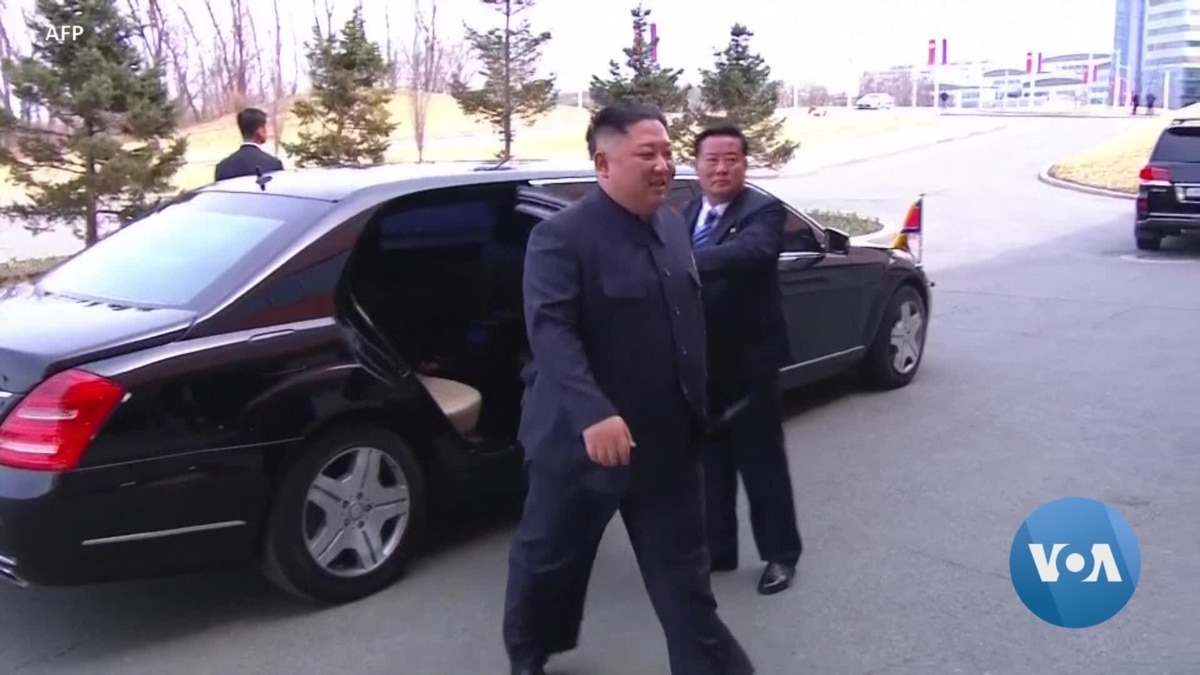
President Donald Trump says he welcomes Russia and China's help with North Korea, after a summit this week in Russia between President Vladimir Putin and North Korean leader Kim Jong Un. But with negotiations between North Korea and the United States stalled, analysts say Kim may have used the Putin summit to show that he has other powerful friends and allies, and is not dependent on his ties with Trump. VOA's Diplomatic Correspondent Cindy Saine reports from the State Department.
Read More Trump Welcomes Russia and China's Help With North Korea : http://bit.ly/2ZD8m4JN. Korea, Trade High on Agenda for Trump-Abe Meeting
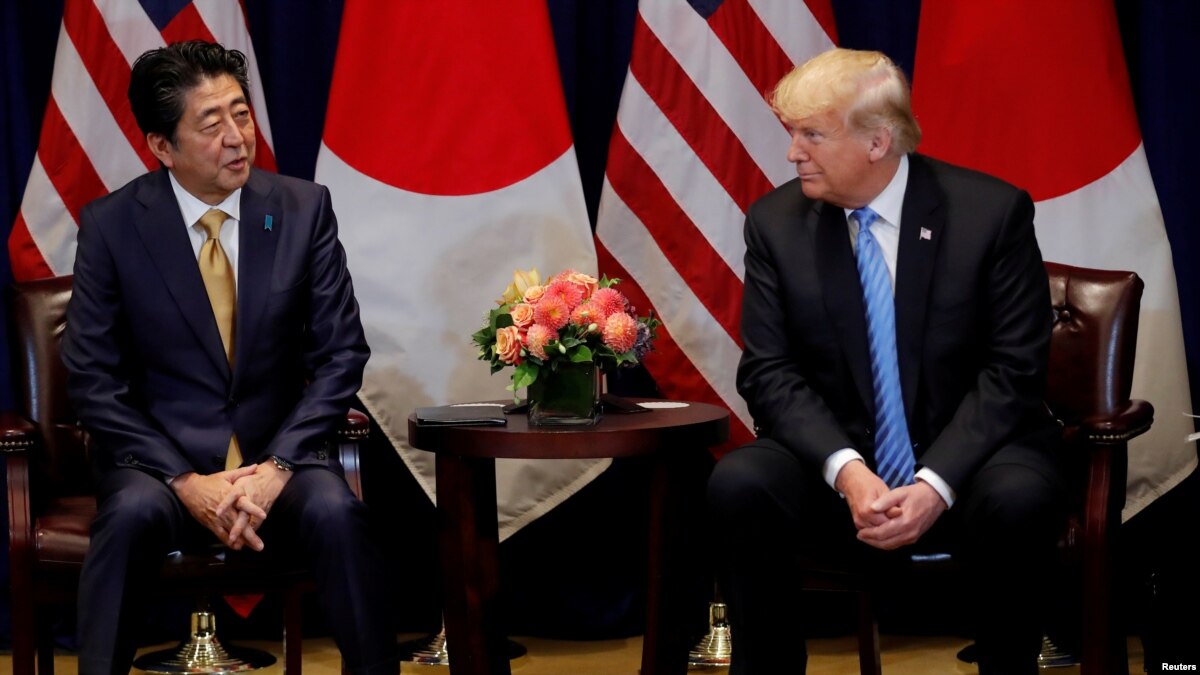
North Korea and trade topped the agenda for President Donald Trump's meeting Friday with Prime Minister Shinzo Abe of Japan.
Trump was to welcome Abe to the White House for talks focused on trade and North Korea's nuclear program.
The meeting follows Thursday's summit between North Korean leader Kim Jong Un and President Vladimir Putin of Russia. Trump's second summit with Kim in Hanoi in February ended with no agreement.
Beyond the formal talks, Abe and his wife, Akie, were to help celebrate first lady Melania Trump's 49th birthday Friday at a couples' dinner in the White House residence.
The leaders are expected to play golf Saturday.
Trump and the first lady will reciprocate in May by traveling to Japan for a state visit to meet the new emperor.
US Official: Ending China's Sanctions Waiver Has 'Marginal' Impact on Trade Talks
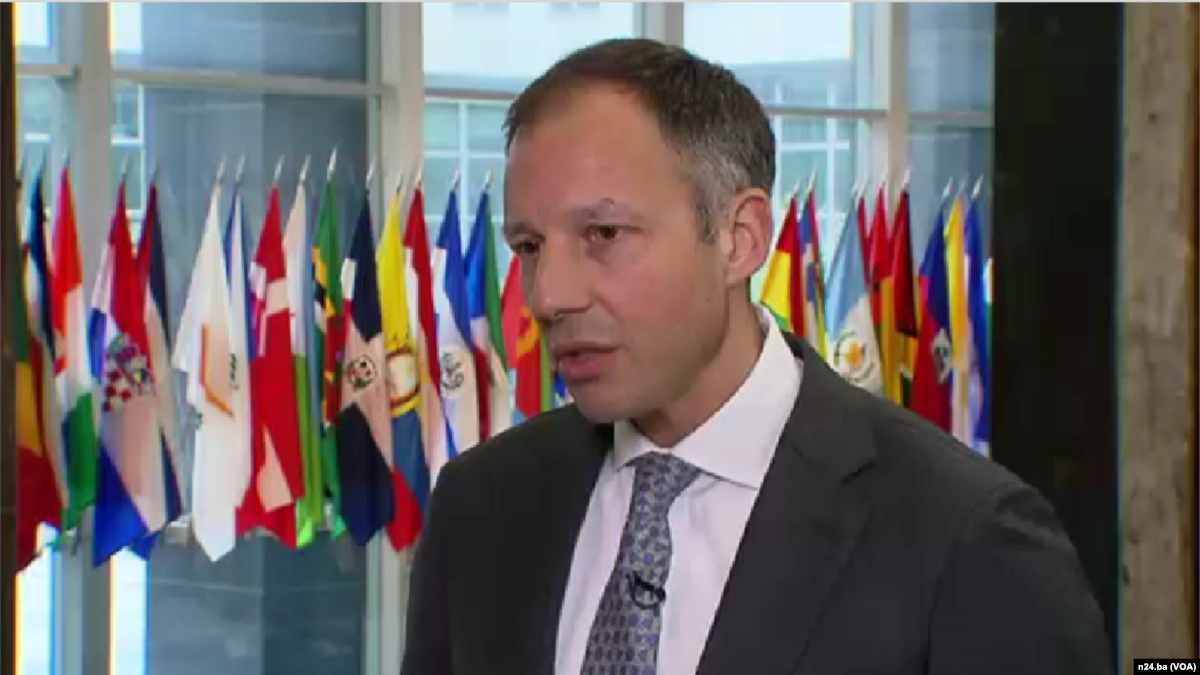
Days before the United States and China resume the latest round of trade talks, a senior State Department official said Washington’s unilateral decision to end a sanctions waiver for China, the biggest buyer of Iranian oil, has “marginal” impact on bilateral trade negotiations with Beijing.
Assistant Secretary of State for Energy Resources Francis Fannon told VOA this week the U.S., as the biggest producer in the world, is “a natural option” to supply oil and that China will find alternative suppliers when a sanctions waiver expires on May 2.
On Monday, the U.S. announced it was ending waivers on sanctions to countries that import Iranian oil, including China, India, Japan, South Korea, and Turkey. Since the sanctions were reintroduced, Italy, Greece and Taiwan have halted their Iranian oil imports.
Fannon spoke with VOA State Department correspondent Nike Ching on Thursday. The following is the edited excerpt of the interview:
VOA: After Monday’s announcement, China and Turkey have pushed back; China opposed the unilateral decision by the U.S.What punitive measures will those nations face if they don't comply? Can you lay out the sanctions they could face?
Fannon: Our focuses are uniquely focused on the Iranian regime, not the importers of Iranian oil. Iran uses the revenues that it generates from oil trade to fund terrorism and proxy wars around the world. And that is unacceptable. So our move is against the Iranian regime.
With respect to the importers, China among them, we're working with other partners around the world to ensure that they're adequately supplied. So we feel like the market is well balanced, that the right types of oil are going to be coming online and increasing production. You’ve seen some very strong statements from some of the producers and countries as well of some other international bodies.
With respect to what's going to happen after May 2, we can't certainly can't speak to future enforcement and how that's going to happen, but the secretary of state was extremely clear that there will be no SRE, Significant Reduction Exceptions, issued after the current expiration, and we feel very confident that countries will understand that, because they're going to get the oil that they need to advance their continue to advance their own development.”
VOA: So you are confident those nations will comply?
Fannon: We think we are. They have the volumes that they need. They have the types, of the grades of oil that they need. And the globe is well supplied with oil. So well supplied that Fatih Birol for example, the head of the International Energy Agency, made a statement speaking to this very point. And even speaking of the spare capacity available in the market. So we're in a very, very comfortable position. We see no reason why countries wouldn't want to support this, this initiative, because their needs are going to be met.
VOA: How about post May 2 enforcement? Some private tankers, owned by private companies, may choose to fly a different nation’s flag. Isn’t it difficult to catch?
Fannon: The point about evasion enforcement is an important one. We have had an unprecedented level of focus of evasion enforcement of our sanctions.
With respect to the flag vessels, yeah, the flagging process is a difficult one and it's hard to get a flag. It's not just something that routine matter. But through the US currently we've already on our sanctions on Iran we've already flagged over 70 vessels, because they've been involved in the illicit oil trade.
So what this, what this requires is for a potential illicit trader to consider doing that one time business with Iran- cause we will catch them and we will enforce our sanctions on them- to make that choice versus ever doing business conducting business with the United States or U.S. firm. That's quite a stark choice to make and we feel confident that they'll make the right one.”
VOA: The Qatari foreign minister was in the U.S. Thursday. What assurance did you get from Qatar, the Saudis or others regarding the oil supply in a timely fashion?
Fannon: We've been in consultation with a variety of producing nations, they've all made strong commitments to increase production, and also not just the total volumes, but also the types of oil.
You know, I mentioned Qatar. I just have to acknowledge Qatar petroleum, where are they increasing their investments here in the United States, they've invested an $8 billion, and a new US LNG export facility along with Exxon Mobil. That really underscores the belief that Qatar has in the U.S. to provide more supplies for the global market. We welcome those investments.
And I just think that in terms of ensuring adequate supply, the U.S. has a prominent role — we talked about some of the other countries and you name a few — but the U.S. is really now the biggest producer in the world and what we found time and time again as the U.S. industry is resilient and continues to increase production in excess of what anyone expects. Last year the US increased production by some 1.6 million barrels. And we’re on track to do that again this year.
One thing that's consistent is the US EIA, Energy Information Administration continues to under-assess on what the US producer is able to make. So we feel we're in a really good, really good place.
VOA: Are you asking those countries to buy oil from the United States?
Fannon: We're asking those countries to buy wherever they need to. We find that’s permissible. The world as well-supplied. What we’re saying here is that the U.S., as the biggest producer in the world, is a natural option as well as Saudi Arabia, etc.
VOA: The State Department works with the Treasury Department regarding Iran sanctions. Treasury Secretary Mnuchin is traveling to Beijing for the trade talks. How would this unilateral decision by the United States affect ongoing bilateral trade talks and trade relations with China?
Fannon: China is also a big, big customer of U.S. liquefied natural gas, as well as other things. We anticipate that energy might come up in the broader trade discussions, but those are — there's so many issues involved in the U.S.-China bilateral relationship, it's an important relationship.
And so, I suspect the Secretary Mnuchin will certainly have a lot of, lot of options for consideration that they'll be working through. I can't speak to how this decision would affect it. This decision — this issue is such a relative [small] scale of our relationship and other issues, economic issues at play here. I think it’s pretty marginal at best.
Read More US Official: Ending China's Sanctions Waiver Has 'Marginal' Impact on Trade Talks : http://bit.ly/2PxuskgDaimler Says It Has No Idea How Kim Jong Un Got His Limos
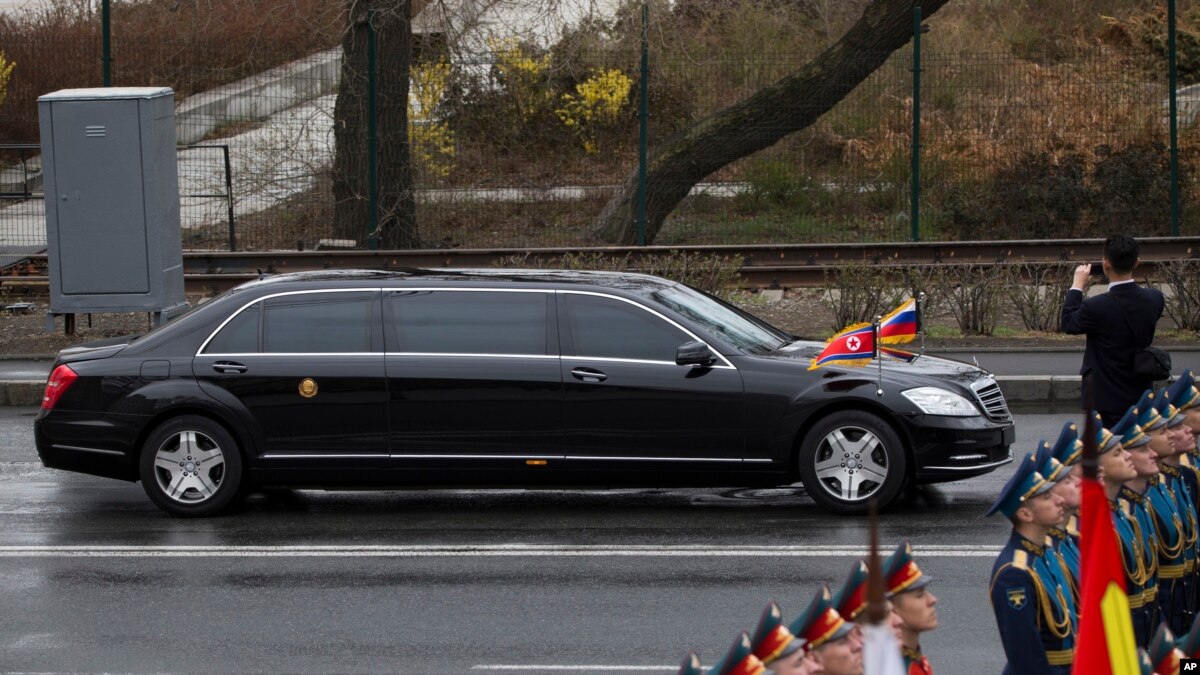
German automaker Daimler, which makes armored limousines used by North Korean leader Kim Jong Un, says it has no idea where he got them and has no business dealings with the North.
Kim has raised eyebrows by using Daimler-branded stretch limousines at several very high-profile summits, including his meeting this week with Russian President Vladimir Putin and both of his earlier summits with President Donald Trump.
The sale of luxury goods, including limousines, is banned under U. N. sanctions intended to put pressure on North Korea to abandon its nuclear weapons.
Kim nevertheless had two limos waiting for him at Vladivostok station - a Mercedes Maybach S600 Pullman Guard and a Mercedes Maybach S62. He is believed to have also used the S600 Pullman Guard for his summits with Trump in Singapore in June last year and in Hanoi in February.
"We have absolutely no idea how those vehicles were delivered to North Korea,'' Daimler spokeswoman Silke Mockert said in a written response to an Associated Press report Wednesday on the limousines . "For Daimler, the correct export of products in conformance with the law is a fundamental principle of responsible entrepreneurial activity.''
Daimler, based in Stuttgart, Germany, is one of the world's biggest and more prestigious automobile companies. It is one of the biggest providers of high-end passenger cars and the world's largest producer of trucks above 6 tons.
On its home page, the multinational giant boasts of selling vehicles and services in nearly all the countries of the world and of having production facilities in Europe, North and South America, Asia and Africa.
North Korea, however, isn't one of its official customers.
"Our company has had no business connections with North Korea for far more than 15 years now and strictly complies with E.U. and U.S. embargoes,'' she said. "To prevent deliveries to North Korea and to any of its embassies worldwide, Daimler has implemented a comprehensive export control process. Sales of vehicles by third parties, especially of used vehicles, are beyond our control and responsibility.''
Kim's ability to procure the limousines anyway is a good example of how porous the international sanctions tend to be.
According to Daimler, the Mercedes-Benz Pullman limousines offer their passengers "a superbly appointed setting for discreet meetings.''
The version used by Kim is believed to be equipped with all the key communications and entertainment systems so that, according to a company description of the car, its occupants can remain "fully in touch with the rest of the world while enjoying the luxury and comfort of their own very special place in it.''
Thief Steals 11 Guns from New Zealand Police Station

A burglar stole 11 guns from a police station in New Zealand, some of which were surrendered to authorities in the aftermath of the mass shooting in Christchurch, police said Friday.
Police are looking for the suspect, who escaped after he was spotted by an officer in the station yard in Palmerston North, a city on North Island. His getaway vehicle was recovered later.
“Eleven firearms which were in an exhibit storage area are currently unaccounted for,” acting Central District Commander Inspector Sarah Stewart said in a statement on the Thursday robbery.
“I should be clear that these were not police firearms, but were a range of weapons being held as exhibits or handed in for destruction. I am very concerned about what has occurred — it is absolutely unacceptable,” Stewart said.
Gun owners across New Zealand are handing their guns to the police after the government passed tough new firearm laws banning semi-automatic military style firearms and other accessories, in the wake of the country’s worst peacetime mass shooting in Christchurch in which 50 people were killed.
People have until Sept. 30 to surrender the guns at local police stations, but thousands of guns have already been received.
Thursday, April 25, 2019
Beijing Hosts 40 Nations for 'Belt and Road' Summit
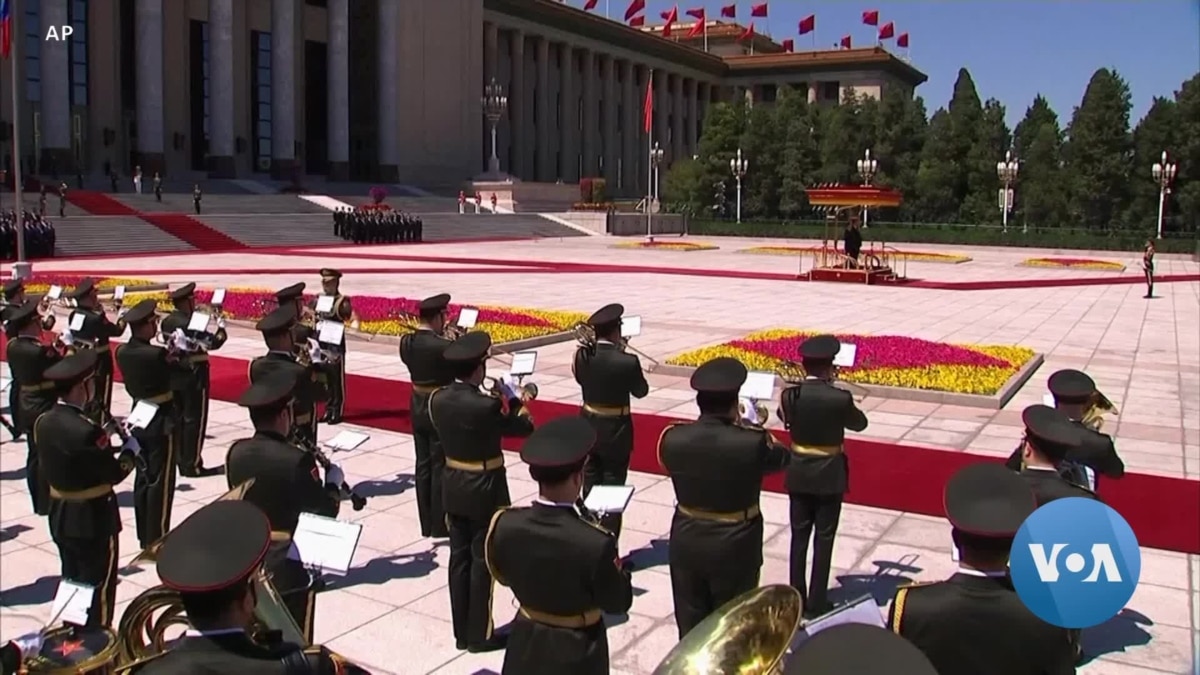
This week, China hosts leaders from 37 countries for its Belt and Road Initiative (BRI), a massive development program expected to involve more than $1 trillion for infrastructure projects. The United States warns countries that the projects are primarily aimed at boosting China's economy, and the financial terms carry risks to countries' economies. VOA's Jesusemen Oni has more.
Read More Beijing Hosts 40 Nations for 'Belt and Road' Summit : http://bit.ly/2PuBC96Putin-Kim Summit Likely Won't Impact Nuclear Talks
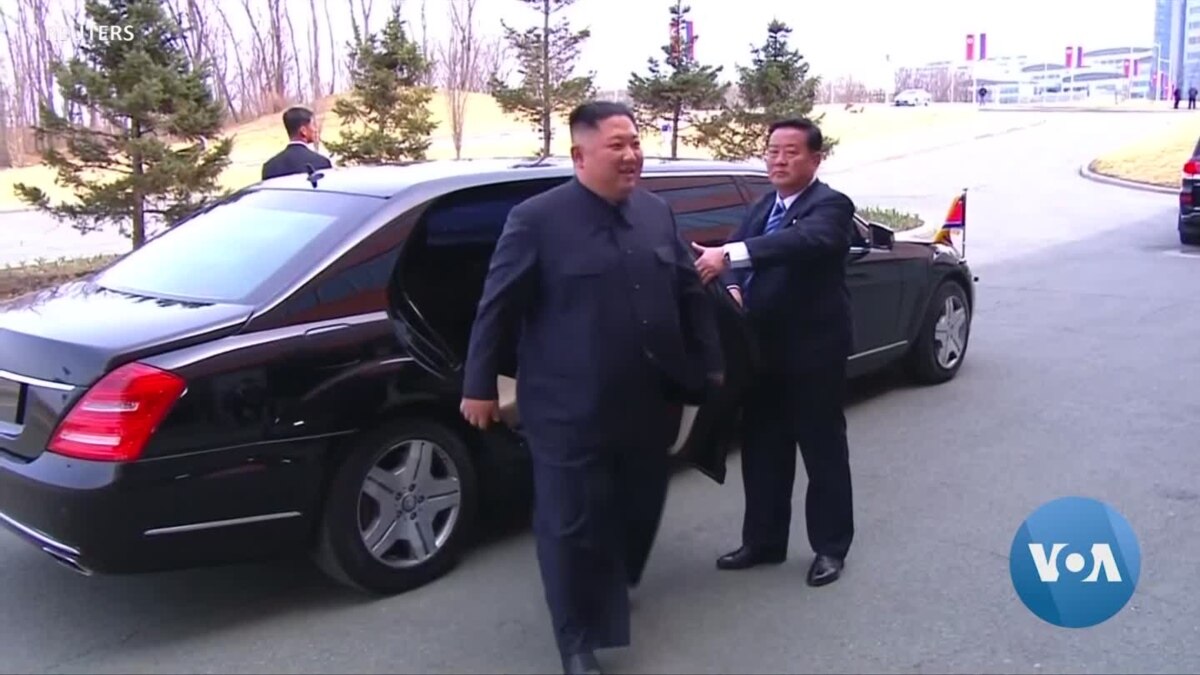
North Korean leader Kim Jong Un and Russian President Vladimir Putin vowed they would work toward closer ties at a summit Thursday in the far-eastern Russian city of Vladivostok. But the meeting is not likely to have much effect on Kim's deadlocked nuclear talks with the United States, as Bill Gallo reports from Seoul.
Read More Putin-Kim Summit Likely Won't Impact Nuclear Talks : http://bit.ly/2UXjdrnChina Plastic Waste Ban Throws Global Recycling into Chaos
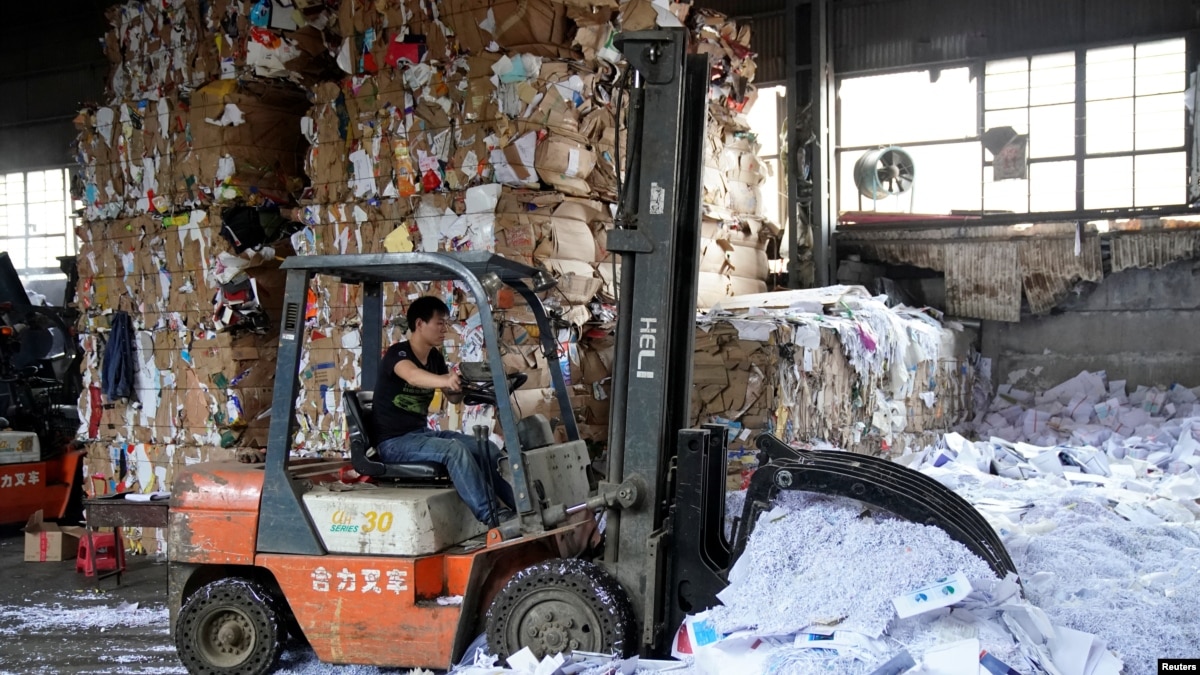
From grubby packaging engulfing small Southeast Asian communities to waste piling up in plants from the US to Australia, China's ban on accepting the world's used plastic has plunged global recycling into turmoil.
For many years, China received the bulk of scrap plastic from around the world, processing much of it into a higher quality material that could be used by manufacturers.
But at the start of 2018, it closed its doors to almost all foreign plastic waste, as well as many other recyclables, in a push to protect the local environment and air quality, leaving developed nations struggling to find places to send their waste.
"It was like an earthquake," Arnaud Brunet, director general of Brussels-based industry group The Bureau of International Recycling, told AFP.
"China was the biggest market for recyclables. It created a major shock in the global market."
Instead, plastic is being redirected in huge quantities to Southeast Asia, where Chinese recyclers have shifted en masse.
With a large Chinese-speaking minority, Malaysia was a top choice for Chinese recyclers looking to relocate, and official data showed plastic imports tripled from 2016 levels to 870,000 tonnes last year.
In the small town of Jenjarom, not far from Kuala Lumpur, plastic processing plants suddenly appeared in large numbers, pumping out noxious fumes day and night.
Huge mounds of plastic waste, dumped in the open, piled up as recyclers struggled to cope with the influx of packaging from everyday goods, such as foods and laundry detergents, from as far afield as Germany, the United States, and Brazil.
Residents soon noticed the acrid stench over the town -- the kind of odor that is usual in processing plastic, but environmental campaigners believe some of the fumes also come from the incineration of plastic waste that was too low quality to recycle.
"People were attacked by toxic fumes, waking them up at night. Many were coughing a lot," local resident, Pua Lay Peng, told AFP.
"I could not sleep, I could not rest, I always felt fatigued," the 47-year-old added.
Toxic fumes
Pua and other community members began investigating and by mid-2018 had located about 40 suspected processing plants, many of which appeared to be operating secretly and without proper permits.
Initial complaints to authorities went nowhere but they kept up pressure, and eventually the government took action. Authorities started closing down illegal factories in Jenjarom, and announced a nationwide temporary freeze on plastic import permits.
Thirty-three factories were closed down, although activists believe many have quietly moved elsewhere in the country. Residents say air quality has improved but some plastic dumps remain.
In Australia, Europe and the US, many of those collecting plastic and other recyclables were left scrambling to find new places to send it.
They face higher costs to get it processed by recyclers at home and in some cases have resorted to sending it to landfill sites as the scrap has piled up too quickly.
"Twelve months on, we are still feeling the effects but we have not moved to the solutions yet," said Garth Lamb, president of industry body Waste Management and Resource Recovery Association of Australia.
Some have been quicker to adapt to the new environment, such as some local authority-run centers that collect recyclables in Adelaide, southern Australia.
The centers used to send nearly everything -- ranging from plastic to paper and glass -- to China but now 80 percent is processed by local companies, with most of the rest shipped to India.
"We moved quickly and looked to domestic markets," Adam Faulkner, chief executive of the Northern Adelaide Waste Management Authority, told AFP.
"We've found that by supporting local manufacturers, we've been able to get back to pre-China ban prices," he added.
Consume less, produce less
In mainland China, imports of plastic waste have dropped from 600,000 tonnes per month in 2016 to about 30,000 a month in 2018, according to data cited by a new report from Greenpeace and environmental NGO Global Alliance for Incinerator Alternatives.
Once bustling centers of recycling have been abandoned as firms shifted to Southeast Asia.
On a visit to the southern town of Xingtan last year, Chen Liwen, founder of environmental NGO China Zero Waste Alliance, found the once-booming recycling industry had disappeared.
"The plastic recyclers were gone -- there were 'for rent' signs plastered on factory doors and even recruitment signs calling for experienced recyclers to move to Vietnam," she told AFP.
Southeast Asian nations affected early by the China ban -- as well as Malaysia, Thailand and Vietnam were hit hard -- have taken steps to limit plastic imports, but the waste has simply been redirected to other countries without restrictions, such as Indonesia and Turkey, according to the Greenpeace report.
With only an estimated nine percent of plastics ever produced recycled, campaigners say the only long-term solution to the plastic waste crisis is for companies to make less and consumers to use less.
Greenpeace campaigner Kate Lin said: "The only solution to plastic pollution is producing less plastic."
Read More China Plastic Waste Ban Throws Global Recycling into Chaos : http://bit.ly/2W7P4CaJapan Tells US Not to Link Monetary Policy to Trade
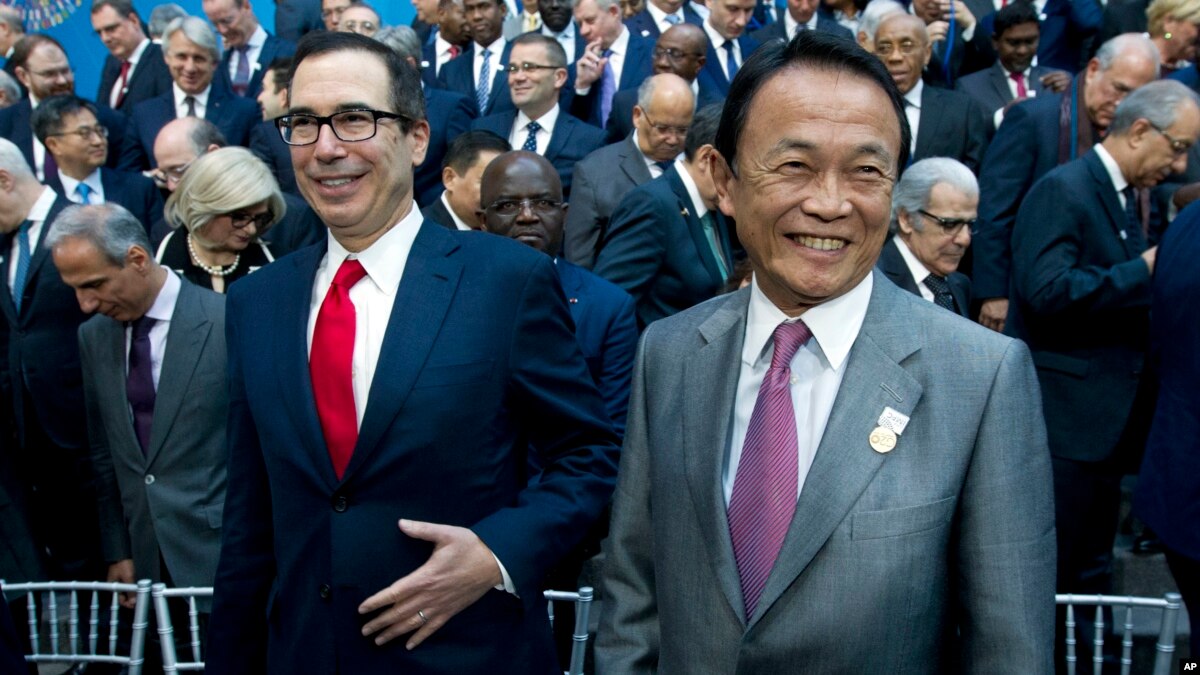
Japanese Finance Minister Taro Aso said Thursday that he told U.S. Treasury Secretary Steven Mnuchin that Tokyo cannot accept discussions that link monetary policy to trade issues.
Aso, who met Mnuchin on the eve of a summit between U.S. President Donald Trump and Japanese Prime Minister Shinzo Abe in Washington, said the two countries also agreed that exchange-rate matters would be discussed between financial authorities.
Trump has made clear he is unhappy with Japan's trade surplus with the United States — much of it from auto exports — and wants a two-way agreement to address it. Trump and Abe agreed last September to start trade talks in an arrangement that protects Japanese automakers from further tariffs while negotiations are under way.
Mnuchin had said in the past that in future trade deals, including one with Japan, Washington would like to include a provision to deter currency manipulation. Tokyo has resisted the idea.
"I told him that Japan cannot agree to any debate linking trade policy with monetary policy," Aso told reporters after his bilateral meeting with Mnuchin on Thursday. "Japan won't discuss exchange-rate matters in the context of trade talks."
Aso declined to comment when asked whether, in his meeting with Mnuchin, the U.S. side had made demands to include a currency provision in trade deals between the two countries.
Currencies are a touchy issue for Japan because it has been criticized for keeping the yen low with massive monetary easing.
Tokyo has argued that its policy easing is aimed at achieving its 2 percent inflation target, not at gaining export advantage by weakening its currency.
Trump Says China's Xi Will Soon Come to White House
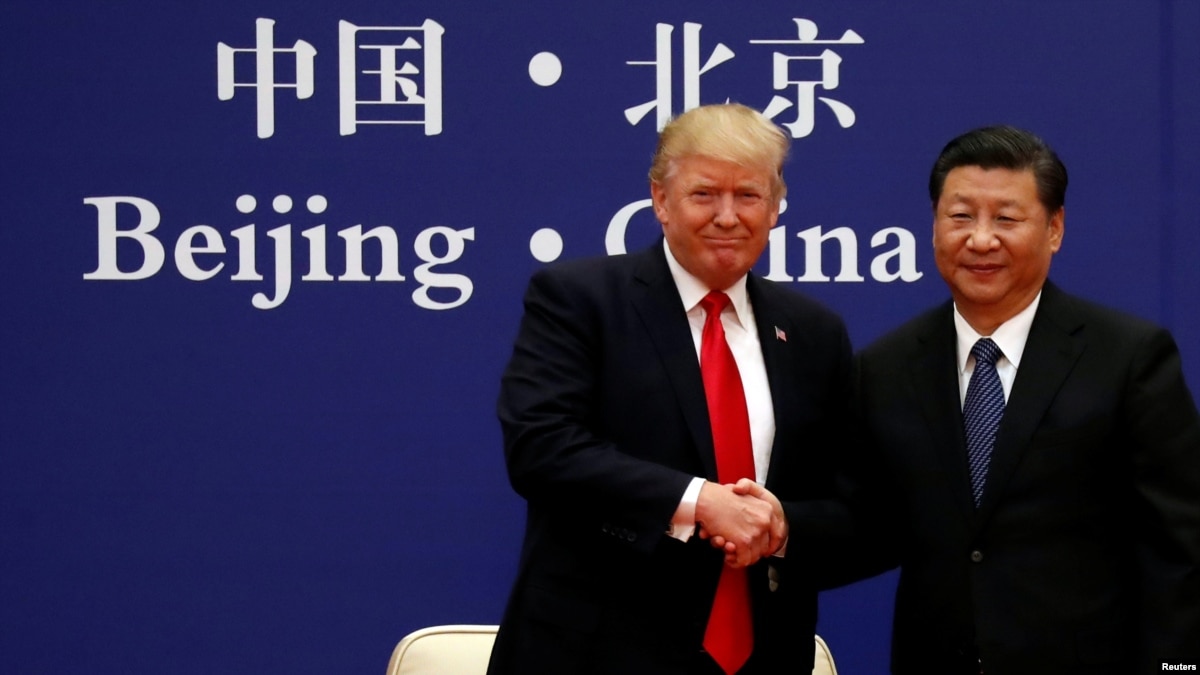
U.S. President Donald Trump said on Thursday he would soon host Chinese leader Xi Jinping at the White House, setting the stage for a possible agreement on trade between the world's two largest economies.
The White House said on Tuesday that Treasury Secretary Steven Mnuchin and U.S. Trade Representative Robert Lighthizer would travel to Beijing for additional talks on a trade dispute that has led to tit-for-tat tariffs between the two countries.
Chinese Vice Premier Liu He, who will lead the Beijing talks for China, will also travel to Washington for more discussions starting on May 8, it said.
"The subjects of next week's discussions will cover trade issues including intellectual property, forced technology transfer, non-tariff barriers, agriculture, services, purchases, and enforcement," the White House said.
Beijing and Washington are seeking a deal to end a bitter trade war that has cost them billions of dollars, disrupted supply chains and rattled financial markets.
Trump has said he expects to finalize the deal in a meeting with Xi.
Report: North Korea Billed US $2 Million for Warmbier Care
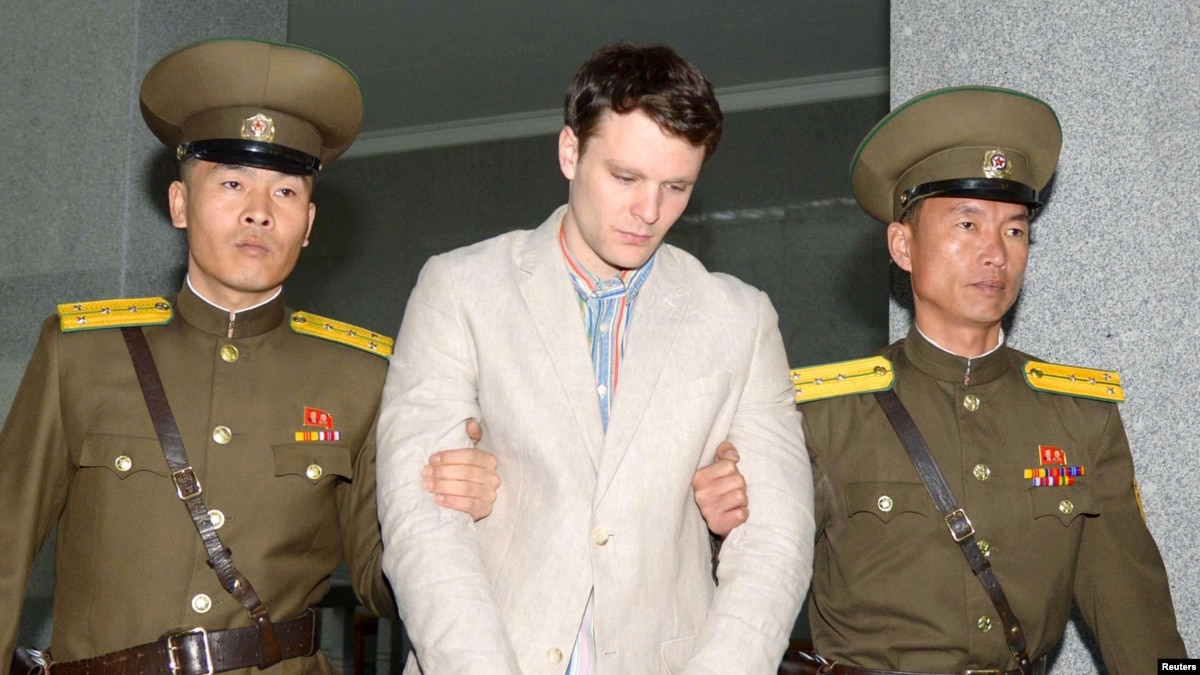
North Korea gave the United States a $2 million bill to cover its expenses for the care of comatose Otto Warmbier, who died shortly after being returned to his home in Ohio after being held in detention in North Korea, the Washington Post reported on Thursday.
The newspaper, citing two people familiar with the matter, said an invoice was handed to a State Department envoy hours before Warmbier, a University of Virginia student, was flown out of Pyongyang in June 2017.
US Adds Chinese e-commerce Site to 'Notorious' List for IP Protection
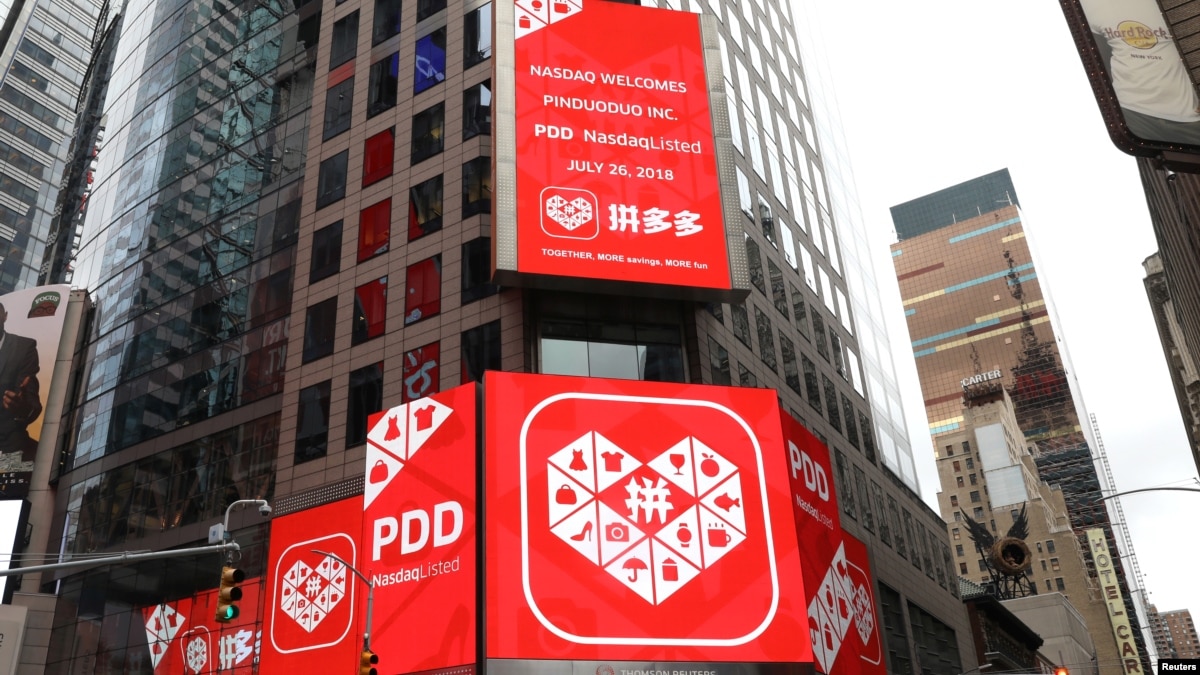
The U.S. Trade Representative said on Thursday it has added Pinduoduo.com, China's third-largest e-commerce platform, to its "notorious markets" list for a proliferation of counterfeit products, as the agency also called out China as a priority to watch for intellectual property rights concerns.
In its annual review of trading partners' protection of intellectual properties rights and so-called "notorious markets," the U.S. Trade Representative said 36 countries warranted additional bilateral engagement over these issues. The agency kept China on the list and lifted Saudi Arabia up as a priority.
The release of the report comes as the United States and China are embroiled in negotiations to end a tit-for-tat tariff battle that has roiled supply chains and cost both countries billions. The two countries are due to resume talks in Beijing next week.
USTR also kept Alibaba Group's taobao.com on the "notorious" list, even though the parent company has "taken some steps" to curb the offer and sale of copyright infringing products, according to the report.
The agency bumped Saudi Arabia up to priority in part due to an illicit service for pirated content called BeoutQ, the report said.
Despite "extensive engagement" in Saudi Arabia by both U.S. government and private stakeholders, treatment of intellectual property rights "continued to deteriorate," USTR said.
Papuans Challenge Indonesian Rule at Country's Highest Court
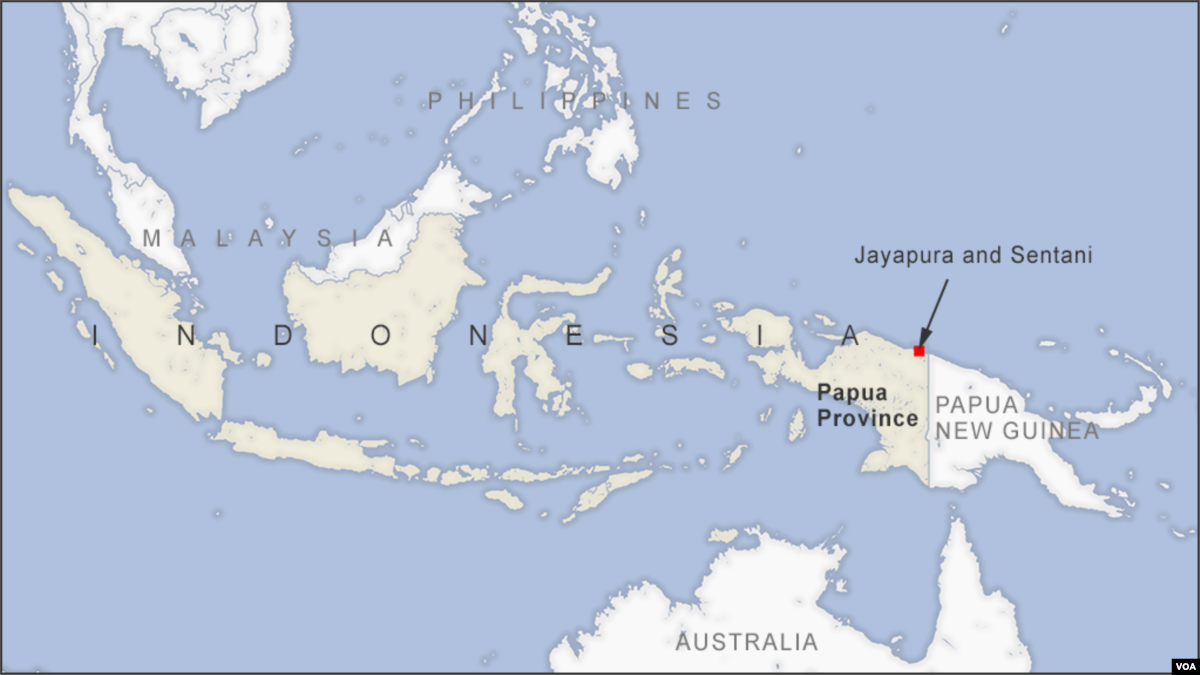
Lawyers are challenging Indonesia's incorporation of the volatile Papua region into its territory in 1969 with a judicial review at the country's highest court
Lawyers are challenging Indonesia's incorporation of the volatile Papua region into its territory in 1969 with a judicial review at the country's highest court.
A spokesman for a group of 15 Papuan lawyers, Agus Sumule, said Thursday the "Act of Free Choice" referendum violated Indonesia's Constitution because it was conducted in a way that grossly violated the human rights of Papuans.
The 1969 referendum, supervised by the U.N., was carried out in an atmosphere of heavy intimidation and only 1,026 hand-picked Papuans were allowed to vote on whether their region should be part of Indonesia. The vote was unanimous in favor.
The referendum was also backed by the U.S., which in the Cold War era was eager to maintain warmer ties with Indonesia following massacres of communists and leftists in 1965 that shifted the country into the Western-allied fold.
Sumule said the process of developing the judicial review was started two years ago but was only submitted to the Constitutional Court on April 12 due to financial reasons such as the expense of traveling from the remote region to Jakarta.
"We talked to various circles of Papuan society before the lawsuit was submitted. They all supported this legal step," Sumule said.
But the Constitutional Court case has revealed fault lines in the Papuan independence movement. The West Papua National Committee, which advocates independence from Indonesia, said in a statement that only a second referendum of indigenous Papuans held under genuine international oversight can decide whether they become a nation.
"The legal and political status of West Papua must be resolved through a peaceful, democratic and final referendum under international supervision," said Victor Yeimo, a leading member of the group.
Indonesia restricts foreign media from reporting in its two easternmost provinces, West Papua and Papua, where an insurgency has simmered since Indonesia occupied the former Dutch colony in the early 1960s.
Foreign Ministry spokesman Arrmanatha Nasir said the Papua issue is "finished."
"For us, Papua cannot be discussed anymore. Papua has been recognized internationally with the U.N.'s decision as part of Indonesia's territory," he said.
UK Government Says it Hasn't Decided yet on Huawei 5G Role
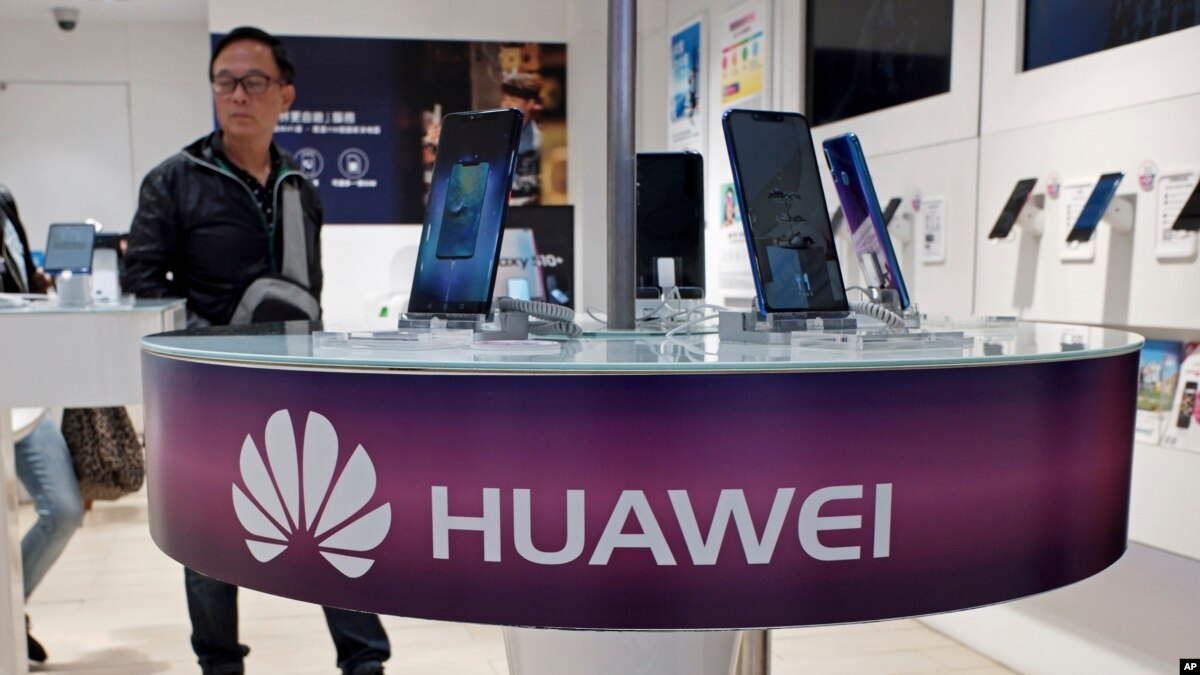
The British government has not yet decided whether to allow China's Huawei to supply parts for the U.K.'s new 5G wireless network, Digital Secretary Jeremy Wright said Thursday, as he condemned leaks from private government discussions on the issue.
Wright said government officials and U.K. intelligence agencies are still carrying out a review on how best to strike the "difficult balance between security and prosperity."
He told lawmakers in the House of Commons that "there has not been a final decision made on this subject."
The United States has been lobbying allies to exclude Huawei from all 5G networks, noting that the Chinese government can force the company to give it backdoor access to data on its networks.
Huawei officials have denied that the company is a security risk, saying that they have no links to the Chinese government and operate like any other international company.
Wright said it was unrealistic to try to eliminate all Chinese equipment from U.K. telecoms systems.
"Huawei is a significant player in this market; there are very few others," he said.
Wright also warned lawmakers against leaking details of meetings of the National Security Council, after the Daily Telegraph newspaper reported Wednesday that the council had approved Huawei's involvement in "non-core" parts of the 5G network.
"Officials, including the security and intelligence agencies, need to feel that they can give advice to ministers which ministers will treat seriously and keep private," Wright said. "If they do not feel that, they will not give us that advice and government will be worse as a result."
Labour Party lawmaker Jo Platt said the government should hold a thorough inquiry into the leak, which comes amid a Brexit-fueled breakdown in government discipline. With Prime Minister Theresa May weakened by her failure to take Britain out of the European Union, multiple ministers are positioning themselves to try to replace her.
Platt said suggestions that a minister leaked the information as part of Conservative leadership jockeying were "truly shocking. "
"Critical issues of national security should be handled with utmost care, not used as political ammunition in a Tory Party civil war," she said.
In Rare Move, French Warship Sails Through Taiwan Strait
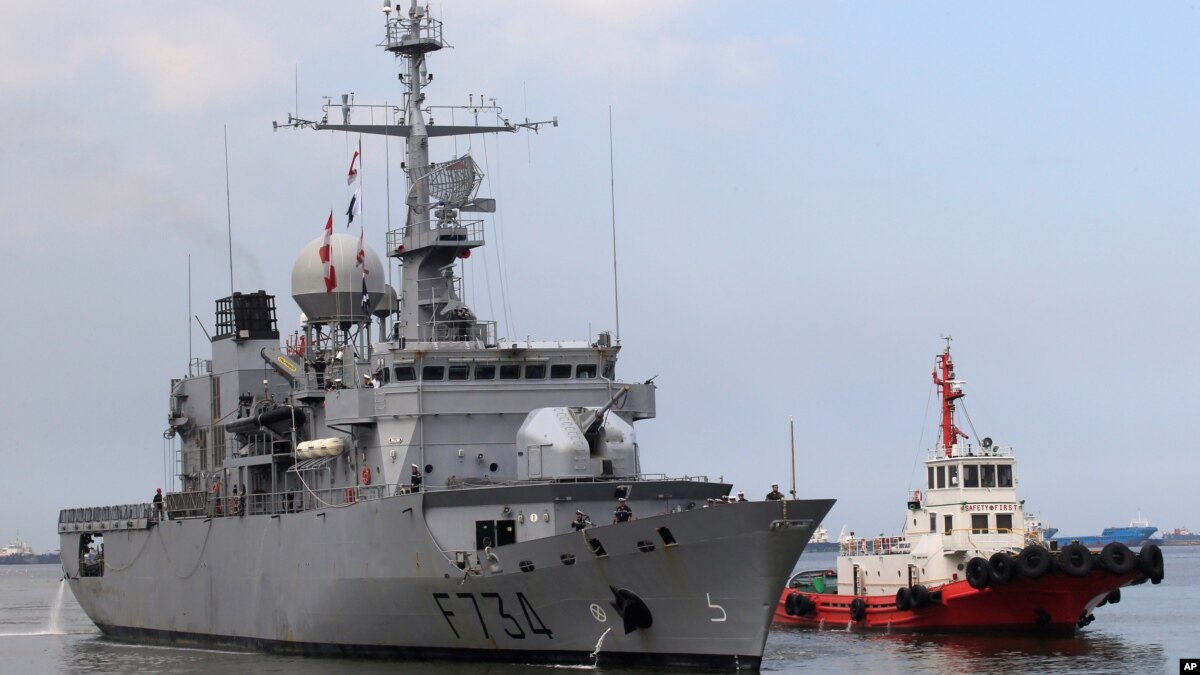
A French warship passed through the strategic Taiwan Strait this month, U.S. officials told Reuters, a rare voyage by a vessel of a European country that is likely to be welcomed by Washington but increase tension with Beijing.
The passage, which was confirmed by China, is a sign that U.S. allies are increasingly asserting freedom of navigation in international waterways near China. It could open the door for other allies, such as Japan and Australia, to consider similar operations.
The French operation comes amid increasing tensions between the United States and China. Taiwan is one of a growing number of flashpoints in the U.S.-China relationship, which also include a trade war, U.S. sanctions and China’s increasingly muscular military posture in the South China Sea, where the United States also conducts freedom of navigation patrols.
Two officials, speaking on condition of anonymity, said a French military vessel carried out the transit in the narrow waterway between China and Taiwan April 6.
Naval parade invitation revoked
One of the officials identified the warship as the French frigate Vendemiaire and said it was shadowed by the Chinese military. The official was not aware of any previous French military passage through the Taiwan Strait.
The officials said that as a result of the passage, China notified France it was no longer invited to a naval parade to mark the 70 years since the founding of China’s Navy. Warships from India, Australia and several other nations participated.
China said on Thursday it had lodged “stern representations” with France for what it called an “illegal” passage.
“China’s military sent navy ships in accordance with the law and the rules to identify the French ship and warn it to leave,” defense ministry spokesman Ren Guoqiang told a regularly scheduled media briefing, while declining to say if the sailing had led to the withdrawal of France’s invitation to the parade of ships this week.
“China’s military will stay alert to firmly safeguard China’s sovereignty and security,” he said.
Routine US passage
Colonel Patrik Steiger, the spokesman for France’s military chief of staff, declined to comment on an operational mission.
The U.S. officials did not speculate on the purpose of the passage or whether it was designed to assert freedom of navigation.
The French strait passage comes against the backdrop of increasingly regular passages by U.S. warships through the strategic waterway. Last month, the United States sent Navy and Coast Guard ships through the Taiwan Strait.
The passages upset China, which claims self-ruled Taiwan as part of its territory. Beijing has been ramping up pressure to assert its sovereignty over the island.
Chen Chung-chi, spokesman for Taiwan’s defense ministry, told Reuters by phone the strait is part of busy international waters and it is “a necessity” for vessels from all countries to transit through it. He said Taiwan’s defense ministry will continue to monitor movement of foreign vessels in the region.
“This is an important development both because of the transit itself but also because it reflects a more geopolitical approach by France towards China and the broader Asia-Pacific,” said Abraham Denmark, a former U.S. deputy assistant secretary of defense for East Asia.
The transit is a sign that countries like France are not only looking at China through the lens of trade but from a military standpoint as well, Denmark said.
Last month, France and China signed deals worth billions of euros during a visit to Paris by Chinese President Xi Jinping.
French President Emmanuel Macron wants to forge a united European front to confront Chinese advances in trade and technology.
“It is important to have other countries operating in Asia to demonstrate that this is just not a matter of competition between Washington and Beijing, that what China has been doing represents a broader challenge to a liberal international order,” Denmark, who is with the Woodrow Wilson Center Washington has no formal ties with Taiwan but is bound by law to help provide the island with the means to defend itself and is its main source of arms.
Read More In Rare Move, French Warship Sails Through Taiwan Strait : http://bit.ly/2GvT1KyWith China Defiant on Iranian Oil, Trump's Sanctions Strategy is Tested
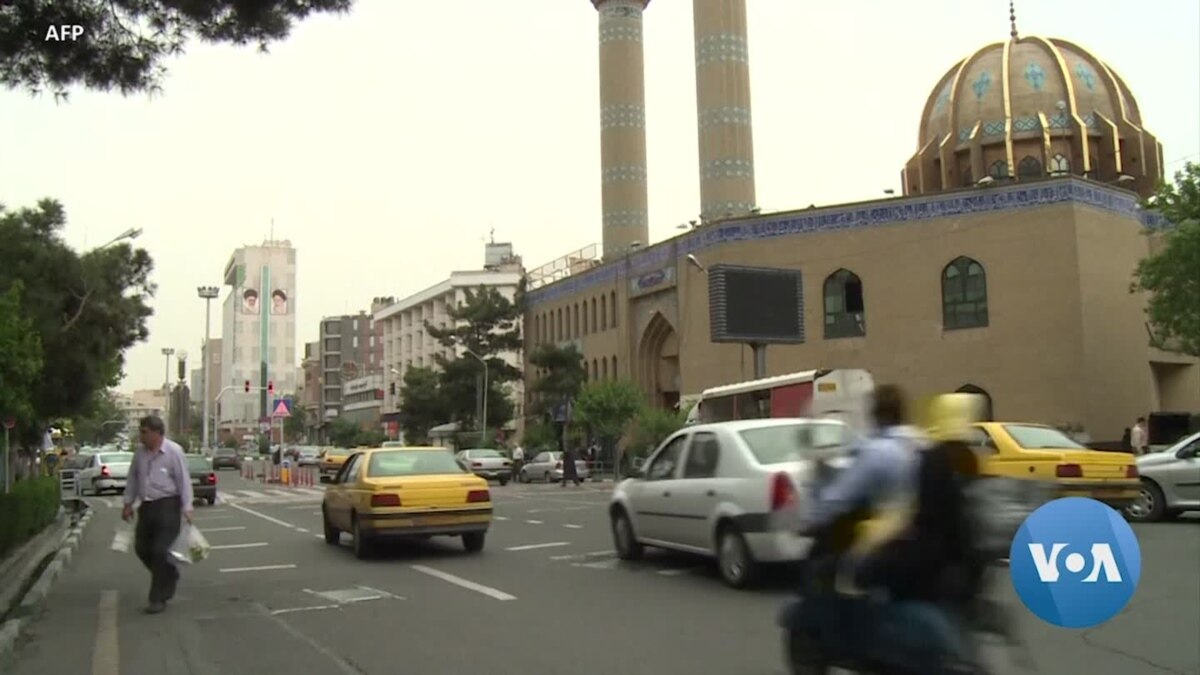
The United States announced earlier this week that it is stopping exemptions given to five countries that continue to buy Iranian oil, saying they must stop purchases by May 1 or face sanctions. China, the top buyer of Iranian oil, and Iran's neighbor Turkey, are resolutely opposing the move, putting the Trump administration's approach of using sanctions to force foreign policy changes to the test. White House Correspondent Patsy Widakuswara has this story.
Read More With China Defiant on Iranian Oil, Trump's Sanctions Strategy is Tested : http://bit.ly/2IGo8GRWednesday, April 24, 2019
South Korean Economy Shrinks Unexpectedly in 1st Quarter
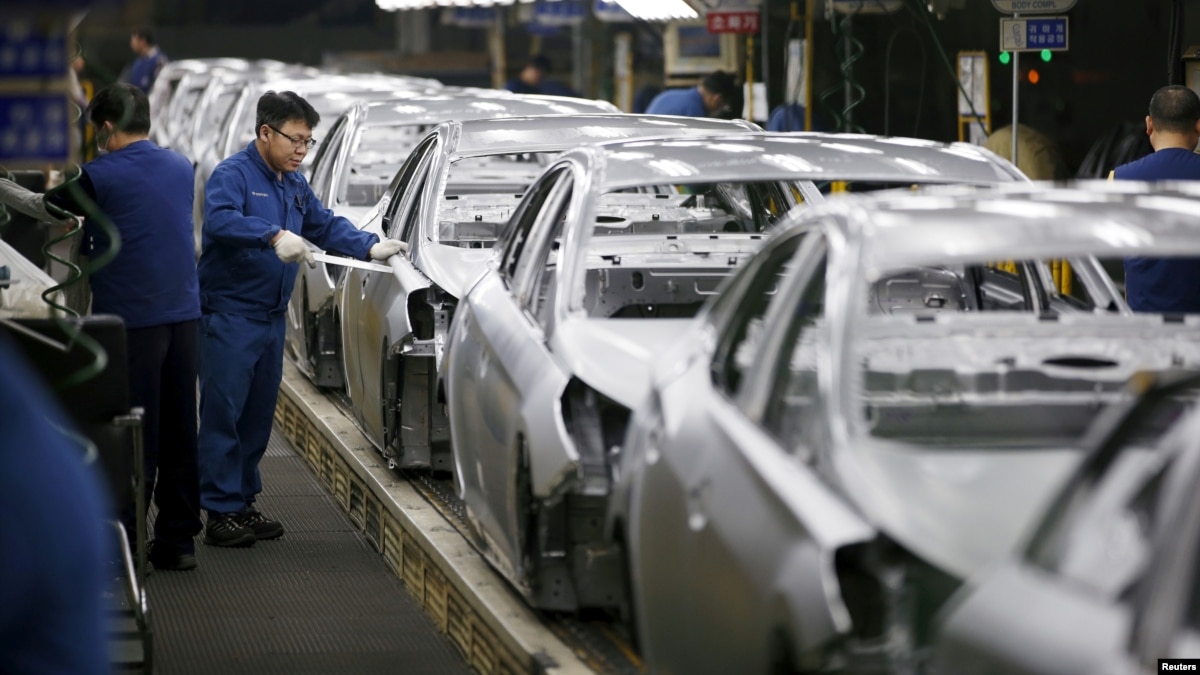
South Korea’s economy unexpectedly shrank in the first quarter, marking its worst performance since the global financial crisis, as government spending failed to keep up the previous quarter’s strong pace and as companies slashed investment.
The shock contraction reinforced financial market views that the central bank is likely to make a U-turn on policy, shifting to an easing stance and possibly cutting interest rates to counter declining business confidence and growing external risks.
A worse-than-expected downturn in the memory chips sector hit first quarter capital investment, while slumping exports amid the Sino-U.S. trade dispute erased gains from private consumption, the Bank of Korea said Thursday.
Gross domestic product (GDP) in the first quarter declined a seasonally adjusted 0.3 percent from the previous quarter, the worst contraction since a 3.3 percent drop in late 2008 and sliding from 1 percent growth in October-December, the Bank of Korea said Thursday.
None of the economists surveyed in a Reuters poll had expected growth to contract. The median forecast was for a rise of 0.3 percent.
Government spending
“Government spending failed to keep up the bumper boost of the fourth quarter, especially for construction investment, while a drop in business investment was worse than expected due to a downturn in the chips sector,” a BOK official said, adding there was also a strong base effect after solid fourth-quarter growth.
The grim data came a day after the Moon Jae-in government unveiled a 6.7 trillion won ($5.9 billion) supplementary budget to tackle unprecedented air pollution levels and boost weak exports.
Capital investment tumbled 10.8 percent, the worst reading since 1998, while construction investment inched down 0.1 percent, the BOK said.
Exports fall
Exports fell 2.6 percent quarter-on-quarter, a sharper drop than the 1.5 percent decline in the previous three months.
Private consumption gained by 0.1 percent because of a rise in demands for durable goods.
From a year earlier, Asia’s fourth-largest economy grew 1.8 percent in the January-March quarter, compared with 2.5 percent growth in the poll and 3.1 percent in the final quarter of 2018.
US Condemns Myanmar Ruling Keeping 2 Journalists Imprisoned
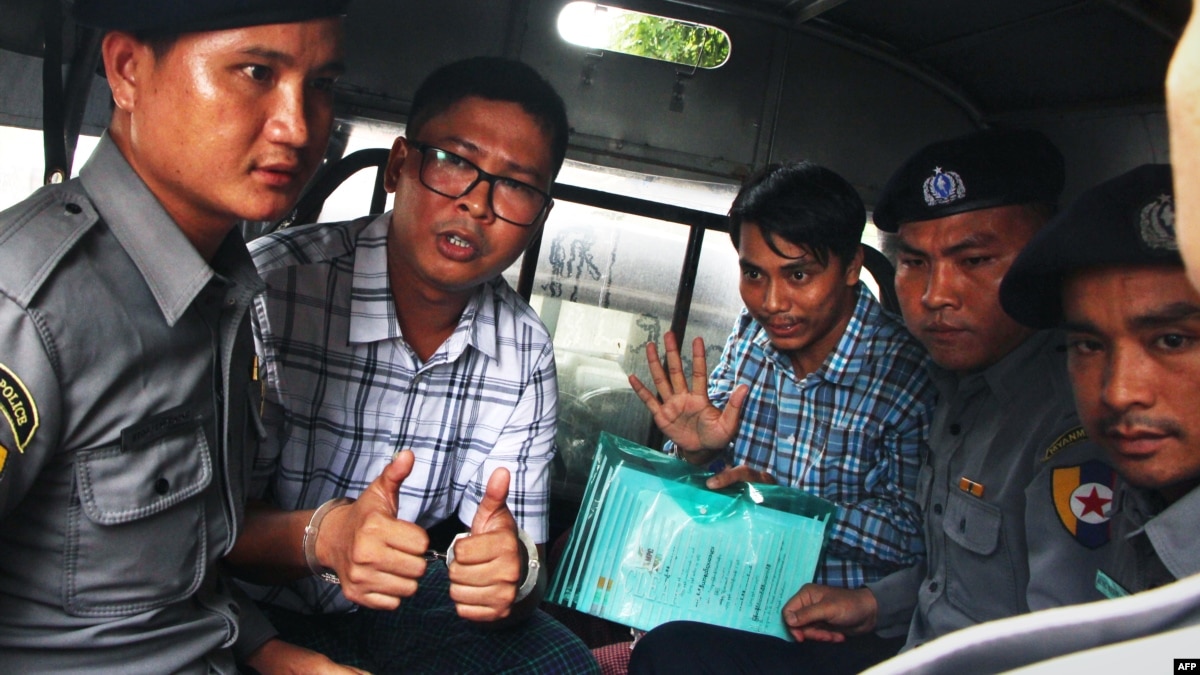
The U.S. on Wednesday condemned the Myanmar Supreme Court decision upholding the convictions of two Reuters journalists for violating the country's Official Secrets Act by uncovering the Myanmar military's massacre of Rohingya Muslims.
The U.S. State Department said Tuesday's ruling against Pulitzer Prize-winning journalists Wa Lone and Kyaw Soe Oo, "despite serious irregularities in the case against them, sends a profoundly negative signal about freedom of expression and the protection of journalists in Burma," the southeast Asia country's colonial name.
The statement said the U.S. "is deeply concerned by recent arrests of reporters, political activists, civil society members, and satirical performers in Burma. We urge Burma to protect hard-earned freedoms, prevent further backsliding on recent democratic gains, and reunite these journalists with their families."
Wa Lone and Kyaw Soe Oo were covering the brutal military campaign in Rakhine state that drove nearly 700,000 Rohingya Muslims across the border into Bangladesh in August 2017.
They were arrested in December 2017 after meeting with two police officers at a restaurant in Yangon and being given a stack of documents. The pair were investigating the massacre of 10 Rohingya by police and soldiers in the village of Inn Din. They were convicted last September and sentenced to seven years in prison.
The Myanmar Supreme Court did not provide any further detail on why it rejected the pair’s appeal. Their lawyers said the journalists were set up by police as a reason to have their original conviction thrown out. At one point in their trial, a law enforcement official testified he planted documents on the two men.
Wa Lone and Kyaw Soe Oo were awarded the Pulitzer Prize for international reporting for their work in uncovering the massacre, which they shared with two colleagues who completed the story after their conviction.
"Wa Lone and Kyaw Soe Oo did not commit any crime, nor was there any proof that they did," Reuters Chief Counsel Gail Gove said in a statement Tuesday in response to the rejection of their appeal. "Instead, they were victims of a police set-up to silence their truthful reporting. We will continue to do all we can to free them as soon as possible."
U.N. Secretary General Antonio Guterres said he remains concerned about the continued detention of the two reporters. "It is unacceptable that these journalists were prosecuted for reporting on major human rights violations against the Rohingya in Rakhine State," his spokesperson said. "The Secretary-General has repeatedly urged for their release and for the authorities to respect the right to freedom of expression and information."
The arrests of Wa Lone and Kyaw Soe Oo have sparked international outrage among free speech and human rights activists, who saw the case as Myanmar's first real test of freedom of expression after embracing democracy in 2016 following decades of repressive military rule.
A special United Nations investigative panel has accused Myanmar's military of carrying out numerous atrocities during last year's crackdown against the Rohingya Muslims "with genocidal intent" and is calling for the prosecution of its top generals, including the army's commander-in-chief, General Min Aung Hlaing, of genocide, crimes against humanity and war crimes.
Former US State Department Employee Pleads Guilty to Hiding Ties to China
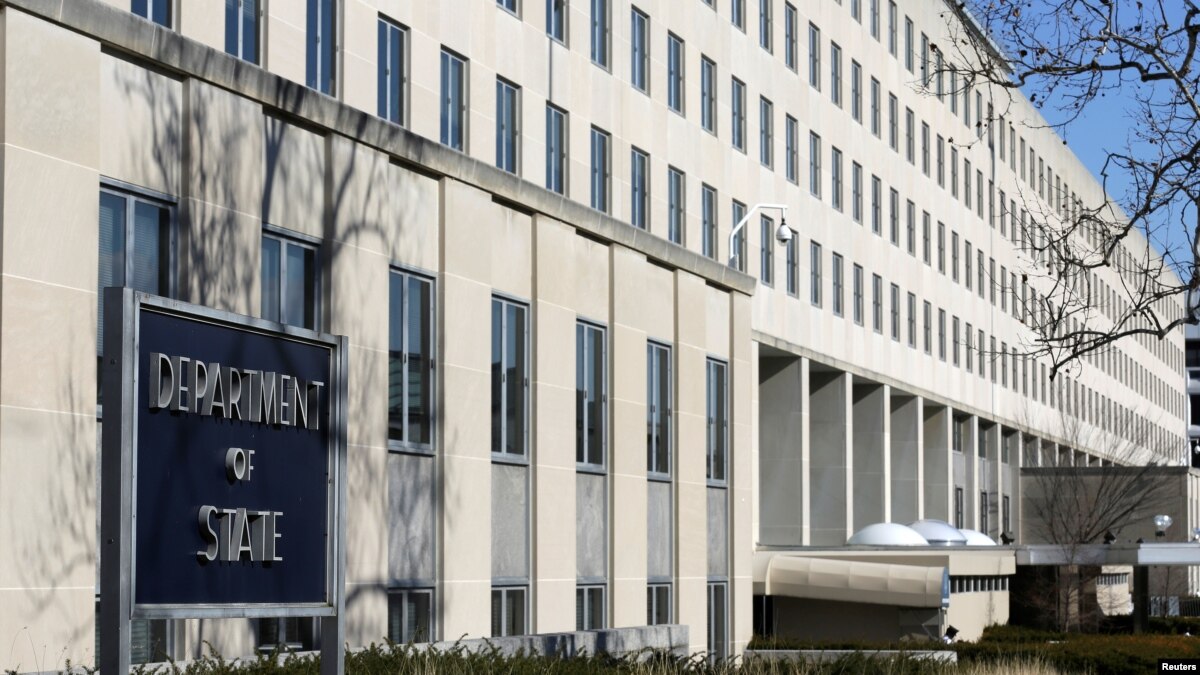
A former U.S. State Department employee accused of hiding extensive contacts with China has pleaded guilty to a felony charge of conspiracy to defraud the U.S. government, the Justice Department announced Wednesday.
Candace Marie Claiborne entered the plea in U.S. District Court for the District of Columbia.
Assistant Attorney General John Demers said the 63-year-old Washington resident "traded her integrity and non-public information of the United States government in exchange for cash and other gifts from foreign agents she knew worked for the Chinese intelligence service."
Claiborne began working for the State Department in 1999, and spent time working in Beijing and Shanghai. She had a top secret security clearance and was required to report foreign contacts.
Prosecutors said Chinese intelligence agents showered her with thousands of dollars in gifts for more than five years in exchange for "copies of internal documents from the State Department on topics ranging from U.S. economic strategies to visits by dignitaries between the two countries."
Claiborne is scheduled to be sentenced on July 9, 2019. She faces up to five years in prison.
Report: N. Korea Using Cryptocurrency to Fund Weapons Program
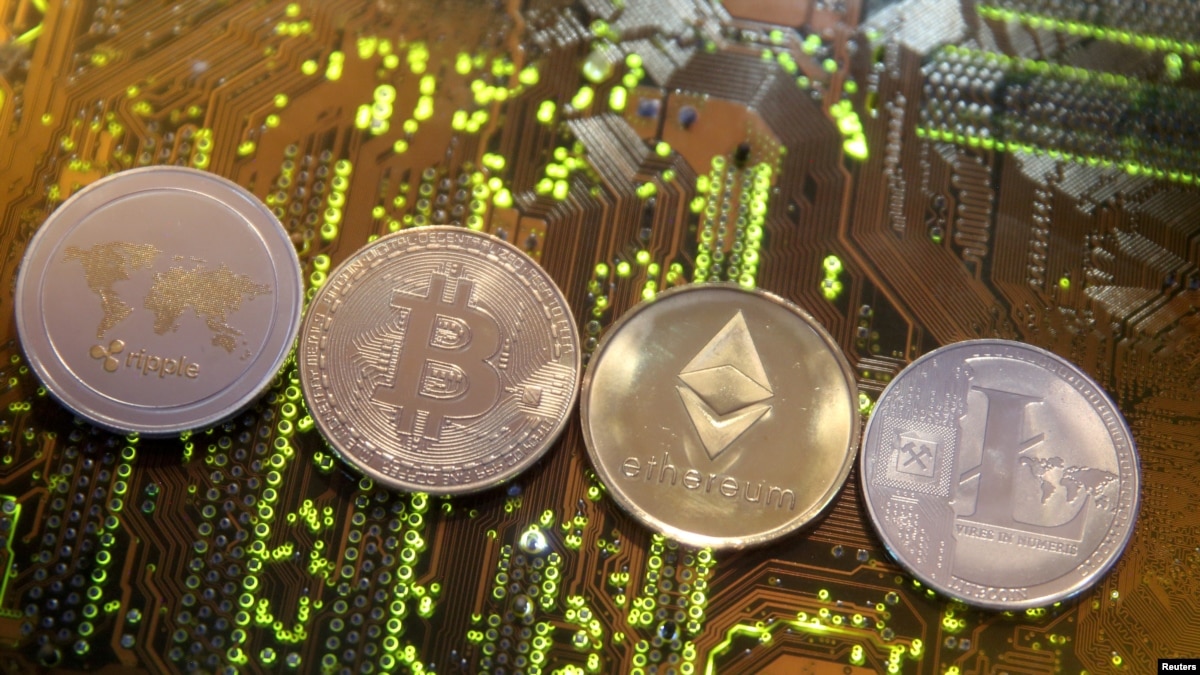
North Korea is using cryptocurrency markets to evade global sanctions and is likely using the virtual money to fund its weapons of mass destruction programs, according to a new report from the London-based Royal United Services Institute (RUSI).
The report recommends regulators take urgent steps to counter the threat.
Pyongyang is subject to wide-ranging international sanctions following a series of nuclear tests and long-range missile launches on recent years. The reclusive state is seeking ways to raise money and bypass those sanctions — and emerging cryptocurrencies could become a key lifeline for the regime, says report co-author Kayla Izenman.
WATCH: Henry Ridgwell's video report
“North Korea is actually getting a significant amount of money through cryptocurrency. And they are getting it outside of the traditional financial system, which is the one that most people think about when they’re thinking about how a weapons of mass destruction program might be financed,” says Izenman.
Many cryptocurrency exchanges ban North Korean users. Pyongyang is accused of numerous hacking operations get around these measures. In one December 2017 attack on South Korea’s Bithumb exchange, it is claimed North Korea hackers stole Bitcoin and Ethereum virtual currencies then worth $7 million.
While cryptocurrency currently plays a minor role in Pyongyang’s financial activities, RUSI’s Izenman says the reclusive state has the capacity to exploit weaknesses in global regulation.
“It’s a national security threat and will just increase in the time to come. Cryptocurrency, especially if you’re using coins such as ‘Monero’ or ‘Zcash’ that that are privacy coins that aren’t as transparent as ‘Bitcoin’, can be used and traded, and they don’t need to go through the fiat system, they don’t need to touch the dollar, they don’t need to touch a bank.”
The report authors warn that southeast Asia’s burgeoning cryptocurrency industry is particularly vulnerable as regulators are struggling to keep up with the technology.
“Most of the hacks that North Korea has been involved in have been in southeast Asia. And most of their sanctions evasion work has also been in southeast Asia. So we’re hoping to help improve regulation in the region. That being said, given that cryptocurrency is inherently a borderless type of system, it’s imperative that everyone be aware of this,” Izenman adds.
Meanwhile, North Korean leader Kim Jong Un arrived Wednesday in Vladivostok for a summit with his Russian counterpart Vladimir Putin — where the ongoing sanctions against Pyongyang are likely to be high on the agenda.
China Charges Former Interpol President with Bribery
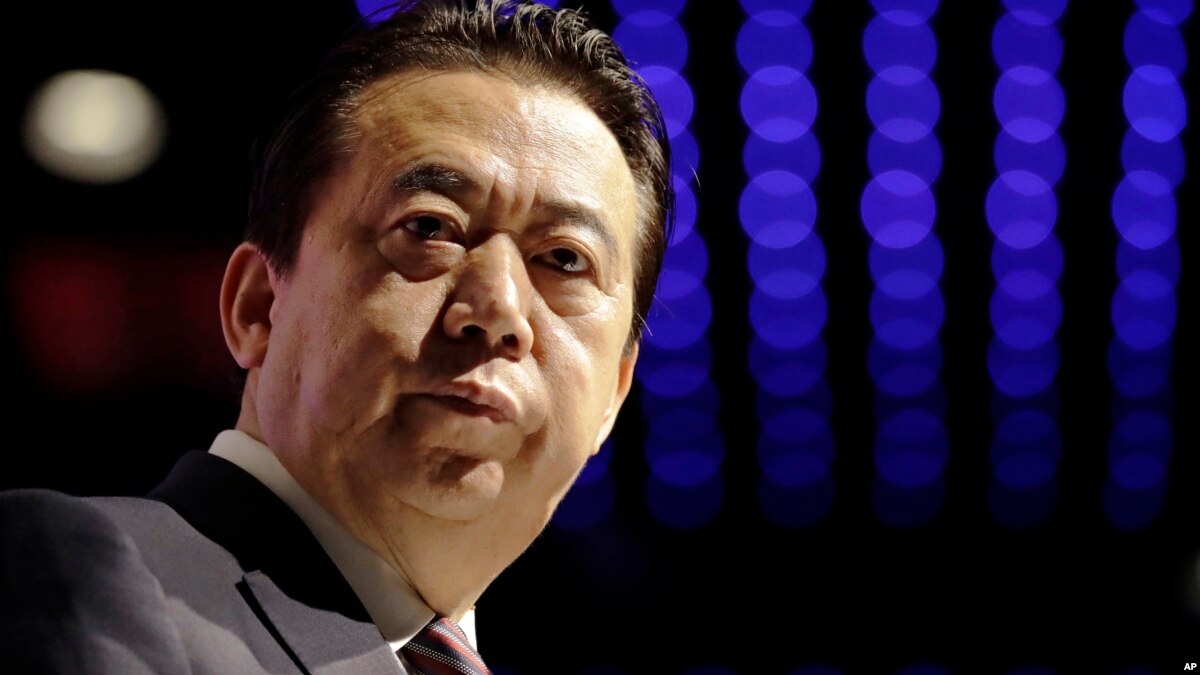
China announced Wednesday that it has formally arrested former Interpol President Meng Hongwei on suspicion of accepting bribes.
The indictment from the Supreme People's Procuratorate comes after Meng was expelled last month from public office and the ruling Communist Party.
Meng's wife accused Chinese authorities of lying and questioned in a statement Wednesday whether her husband is still alive.
Meng was elected president of the international police organization in 2016, but his four-year term was cut short when he was detained by Chinese authorities during a visit to China last October. At the time, he was also one of China's vice ministers of public security.
The party's disciplinary committee said an investigation found that Meng was guilty of serious legal violations. It said in a statement that he abused his power in order to satisfy his family's "extravagant lifestyle."
Meng is among a slew of high-ranking officials who have been ensnared by President Xi Jinping's sweeping crackdown on graft and perceived disloyalty. Corruption charges usually result in convictions and lengthy sentences, including life in prison.
Meng's wife, Grace Meng, said in a statement that "Mr. Meng's human rights are still being violated. We don't even know if he is alive."
She has remained in France with their two boys since her husband's detention in September.
North Korea Using Cryptocurrency to Fund Weapons Program, Report Warns
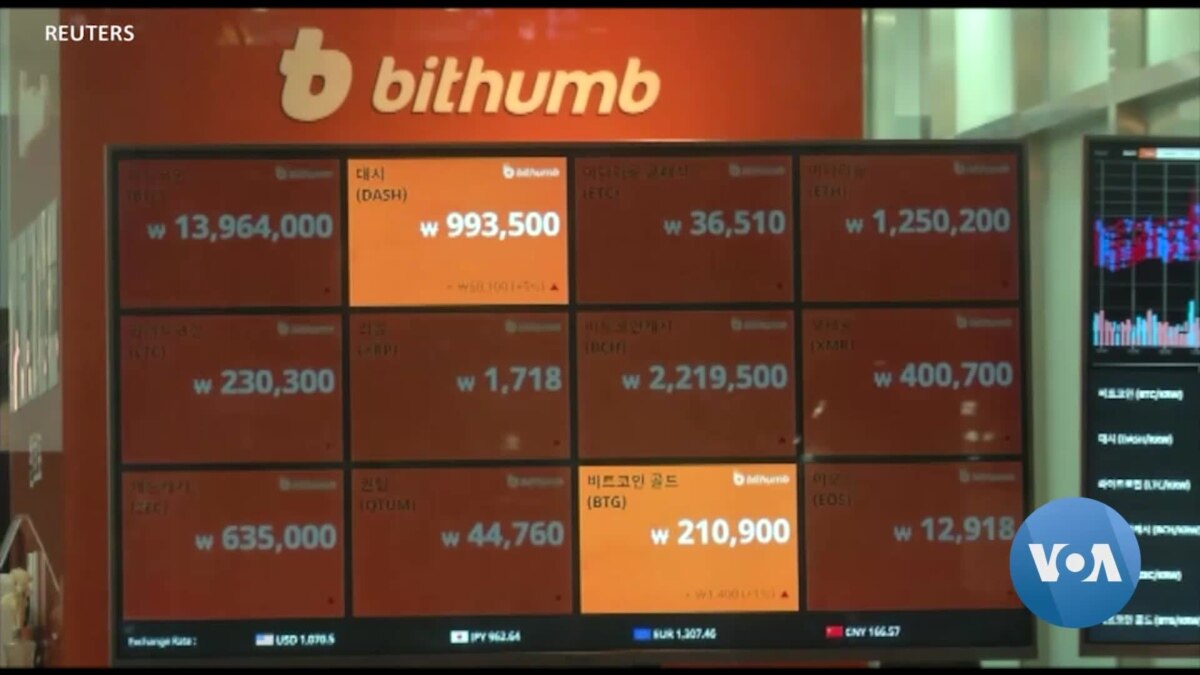
North Korea is using cryptocurrency markets to evade global sanctions - and the virtual money is likely being used to fund its weapons of mass destruction programs, according to a new report from the London-based Royal United Services Institute. Henry Ridgwell reports.
Read More North Korea Using Cryptocurrency to Fund Weapons Program, Report Warns : http://bit.ly/2DwaEsRReports Huawei Allowed into UK 5G Networks Draw Criticism
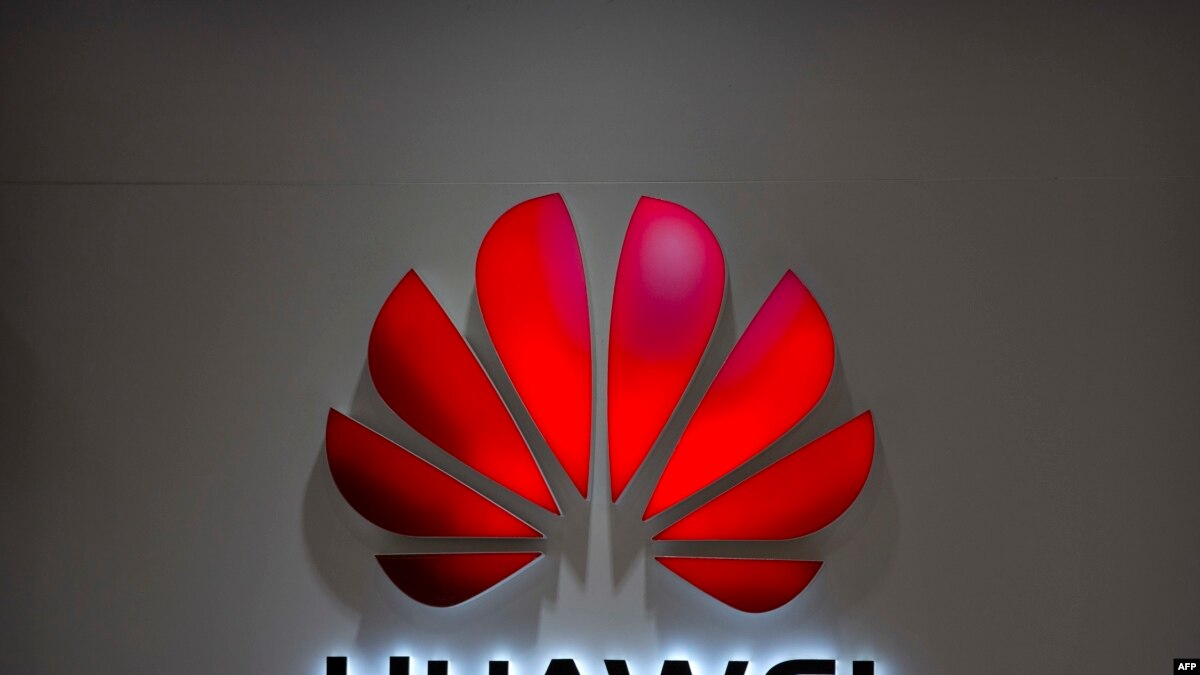
Reports that Chinese telecoms company Huawei will be allowed to provide parts of Britain's future superfast internet networks have drawn criticism, with one lawmaker saying the decision increases the risk of Chinese cyberespionage.
British media are reporting that the government will let Huawei work on "non-core" parts of the so-called 5G network, which will handle massive amounts of consumer data.
The head of Parliament's foreign affairs committee, Tom Tugendhat, told the BBC Wednesday that it is very difficult to separate core and non-core components.
He says Chinese laws force Huawei "to cooperate with the security apparatus" and it is unwise to cooperate on a telecoms issue with a state "that can best be described as not always friendly."
Digital Minister Margot James said no final decision had been made.
Post-Election, Indonesian President Expected to Go Soft on China Despite Maritime Flaps
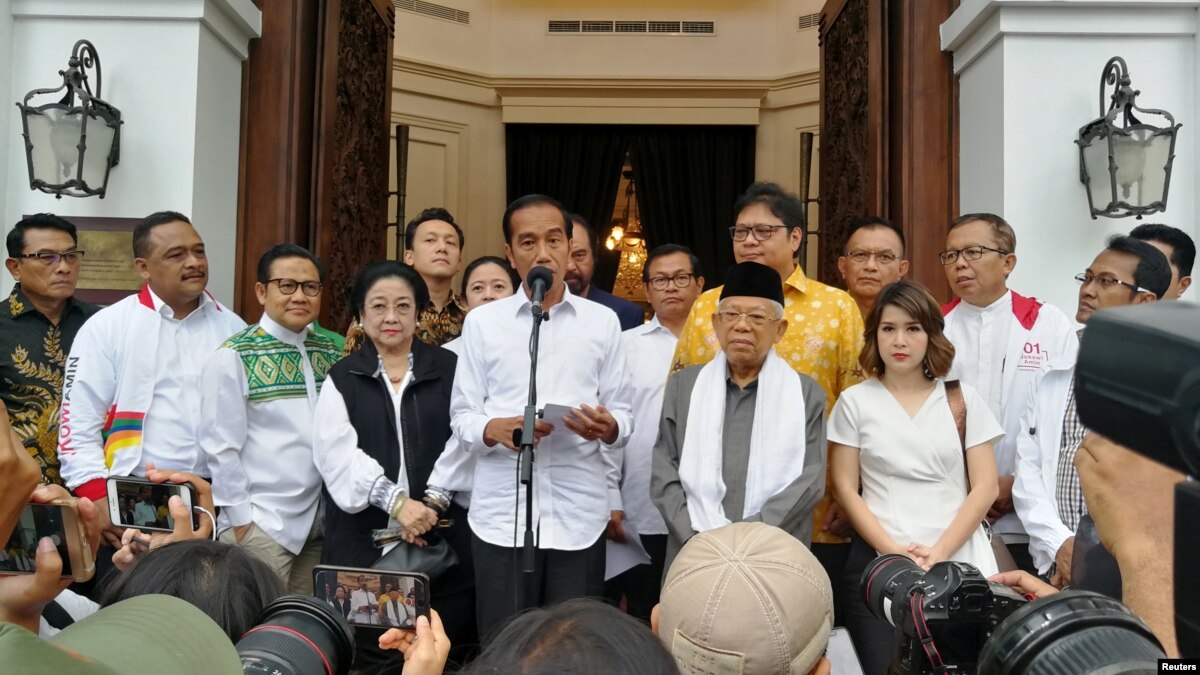
Indonesian President Joko Widodo is expected to warm toward China in his second term in search of infrastructure funding instead of challenging Chinese sovereignty in a fishery-rich sea between them.
The leader who since 2014 has emphasized domestic issues in Asia’s third largest country rather than foreign policy initiatives will probably build up Indonesia’s status as a node in China’s $1 trillion-plus Belt and Road Initiative, scholars who know the country say. The 6-year-old initiative is aimed at opening trade routes around Eurasia via infrastructure projects.
Indonesia’s government will repel any Chinese vessels from waters it claims near the Natuna Islands, experts say, but otherwise avoid confronting the militarily stronger China over maritime sovereignty. The president, often known by his hybridized name Jokowi, won a second five-year term April 17.
“Although Jokowi sought to downplay Chinese-funded projects in recent elections, he is likely to continue the current stance of attracting Chinese capital for infrastructure development while reinforcing defenses around the Natuna islands against Chinese encroachments and illegal fishing,” said Mohan Malik, a professor in Asian security with the Daniel K. Inouye Asia Pacific Center for Security Studies in the United States.
Stable Sino-Indonesian relations would advance Beijing’s goal of keeping Western-aligned powers out of the South China Sea dispute, possibly in Indonesia’s defense, while ensuring that the impoverished archipelago of some 13,000 islands gets vital infrastructure support.
No compromise on the Natuna Islands
Widodo’s next five years as president are expected overall to extend his maritime policies since 2016. Widodo parted ways around then with five predecessors by trying to shape Indonesia as a maritime power, according to published research by the East-West Center think tank in Honolulu. It says he sought to turn Indonesia into a “two-ocean, Indo-Pacific power” in view of the archipelago’s expanse.
China claims most of the 3.5 million-square-kilometer South China Sea that reaches from the Natuna chain to the Chinese mainland. China doesn’t claim the tiny Natuna islets, but in 2016 its foreign ministry cited historic rights for its fishing boats to use nearby waters.
Indonesian authorities have burned dozens of foreign fishing boats, and last year the country opened a base in the Natuna Islands with a hangar for drones and up to 1,000 personnel who could be trained for any kind of operation.
“Back then, Jokowi basically said you need to guard Indonesia’s status as a maritime power," said Alan Chong, associate professor at the S. Rajaratnam School of International Studies in Singapore, referring to Widodo's first term. The base, he said, "is in line, very clearly in line, with that.”
Also last year, Indonesia renamed part of the disputed ocean tract the North Natuna Sea, drawing an angry response from China.
China might look for natural gas deposits in the contested waters, said Carl Thayer, emeritus professor at the University of New South Wales in Australia. But if Indonesia just repels individual Chinese vessels without making a political scene, he said, it’s harder for China to initiate any trouble.
“Unless there’s provocation or an incident that comes up, Indonesia basically won’t react too much to the matter of those islands,” said Tai Wan-ping, Southeast Asia-specialized international business professor at Cheng Shiu University in Taiwan. "They might make a verbal response but not military action.”
Capital from China
Indonesia’s reliance on China for help developing infrastructure will temper ambitions to stand up for the Natuna waters, some analysts believe.
Widodo’s comments on foreign relations are aimed at courting Chinese development help rather than in taking a stand on “issues such as the South China Sea crisis,” writer Nithin Coca said in a report for the Lowy Institute for International Policy in Australia.
Indonesia was once “more cautious in its approach” to the Belt and Road, “conscious of ensuring that investments bring real benefits to the nation while minimizing any negative effects,” Jakarta-based investment research and advisory institute Tenggara Strategics said last year in a research paper.
In August, Widodo told the Indonesian People’s Consultative Assembly his government would focus on “acceleration of infrastructure development” to catch up with other countries and create new economic centers in the country.
China has already offered billions of U.S. dollars to Indonesia for infrastructure such as a railway line on the main island Java. Too much could irritate Indonesians who already resent China so much that they rioted in the 1960s against ethnic Chinese in their country.
“He wants the ports through the archipelago to be modernized and the sea lanes to become the really major safe transit route, and so getting extra crumbs or not so much crumbs, half a loaf of bread, from China would be to his advantage, but I think there also is an underlying anti-China sentiment in Indonesia,” Thayer said.
Read More Post-Election, Indonesian President Expected to Go Soft on China Despite Maritime Flaps : http://bit.ly/2GChKxPSearch
Featured Post
Rubin Museum, Haven for Asian Art, to Close After 20 Years - The New York Times
It is the first major art museum in New York to close within recent memory. The museum had financial challenges and has faced accusations o...

Postingan Populer
-
asianpostmedia.blogspot.com Ex-CEO John Clendening slams his former employer for allegedly rewriting history to fend off attack from activi...
-
Merdeka.com - Tahun lalu, organisasi teroris ISIS yang menguasai sebagian wilayah di Suriah dan Irak berhasil digempur. ISIS kehilangan wi...
-
asianpostmedia.blogspot.com With restaurant closures and stay-at-home guidelines, you are likely cooking at home a lot more than you are us...